'You can't escape us': Devolver plots to release a game on GTA 6's release date, no matter when that is
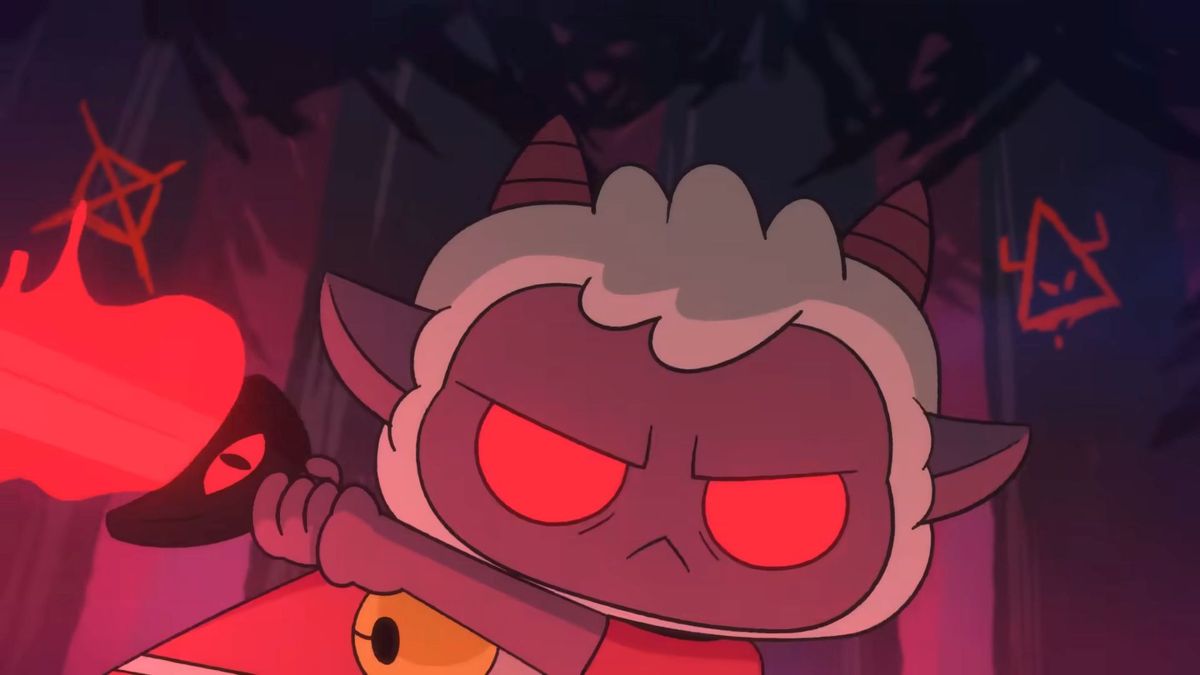
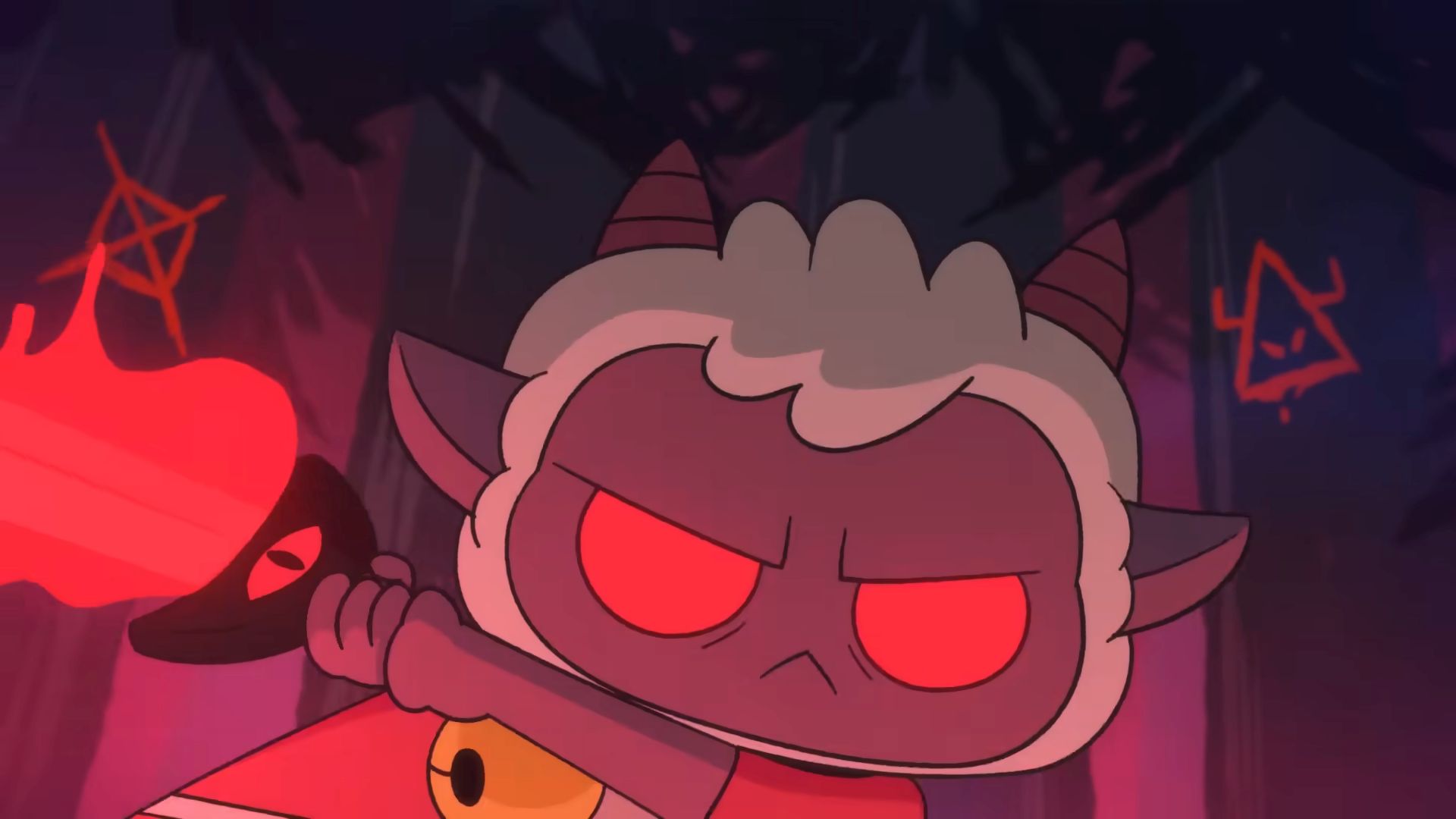
© Devolver


© Devolver
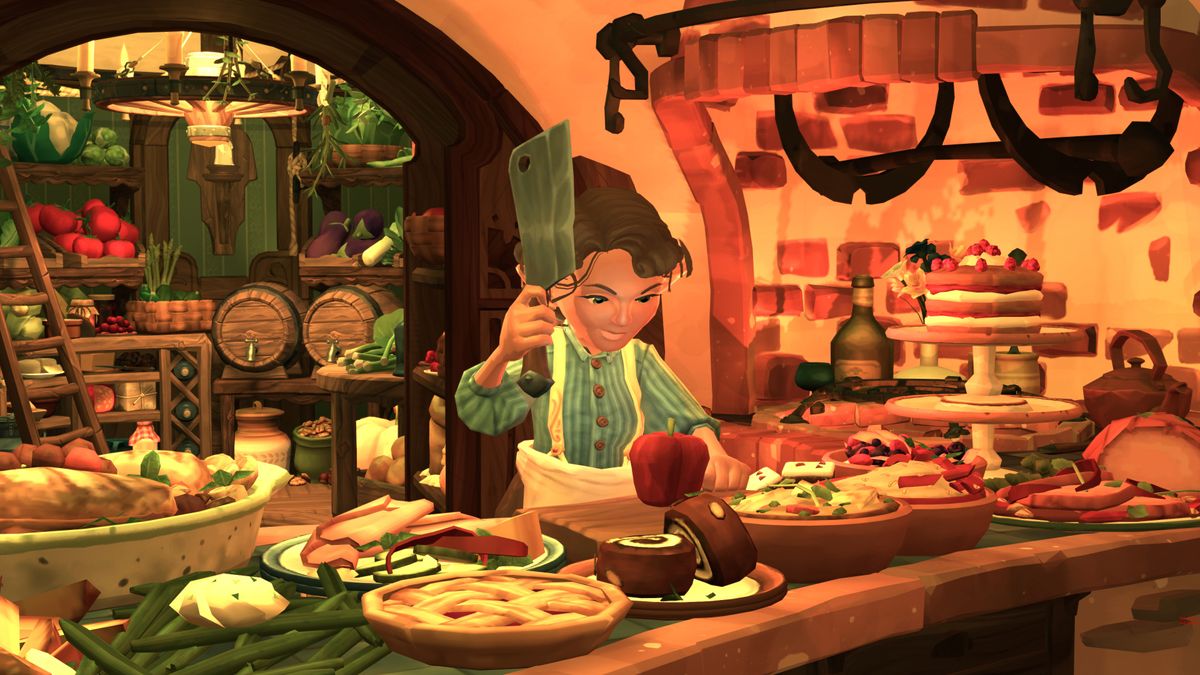
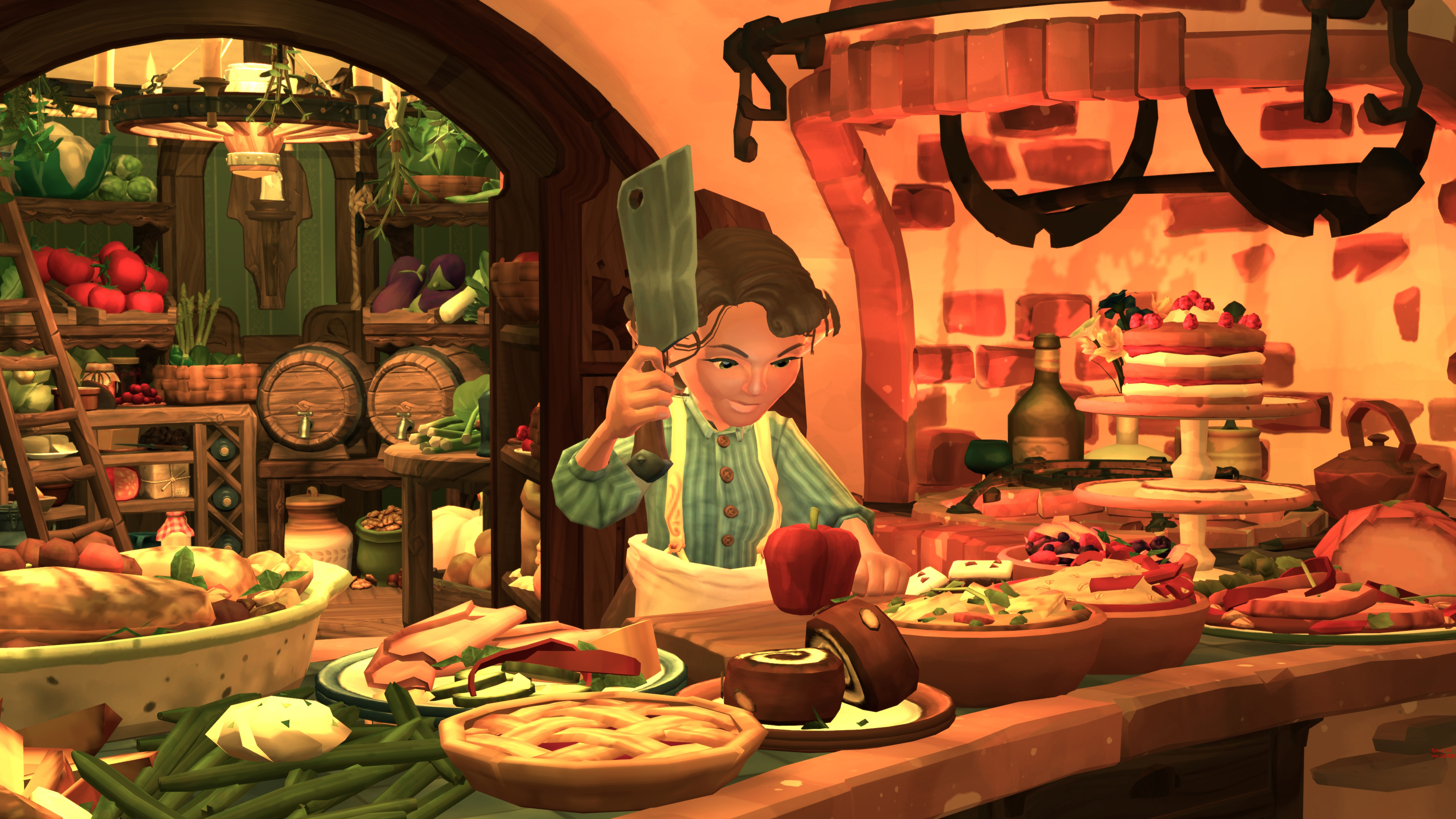
© Wētā Workshop

The weekend is officially here, and we've rounded up the best deals you can find! Discover the best deals for May 4 below:
To celebrate May the 4th, you can score this 2314-piece LEGO Star Wars R2-D2 set for just $167.99. This is an excellent collector's item for any collection, as R2-D2 is the perfect size to fit on any shelf! Every detail from the iconic droid is captured in this set, including its rotatable head!
LEGO Star Wars: The Skywalker Saga is by far the biggest LEGO game available, with hundreds of characters to collect across numerous planets. You can pick up the game for just $10 at Amazon right now for PS4, making this a deal you won't want to pass on. All nine films are included in this game, with characters from newer Disney+ Star Wars series as well.
Next up, you can also save on this LEGO Star Wars Millennium Falcon Set. This set celebrates the 25th anniversary of LEGO Star Wars, making it a must-own for any collector. Many of the Falcon's iconic details are all here, including the round table inside and the satellite dish on top.
Monster Hunter Wilds is still one of the biggest games of 2025, and you can save $15 off the PS5 version for a limited time at Woot. This is by far the most beginner-friendly Monster Hunter to date, with new features like Focus Mode that allow you to approach fights in new ways. In our 8/10 review, we wrote, "Monster Hunter Wilds continues to smooth off the rougher corners of the series in smart ways, making for some extremely fun fights but also lacking any real challenge."
Dragon Quest III HD-2D Remake was one of my favorite games last year, offering gorgeous HD-2D visuals, an orchestrated soundtrack, and plenty of charm. This weekend, you can save ~$15 off a Nintendo Switch copy, which is a sweet deal considering this game has not made it on sale much. Now is the time to start building your catalog for Nintendo Switch 2, and what better place to start than Dragon Quest?
First up, you can save $50 off the newest iPad. Powered by the A16, the newest 11th-generation iPad is an exceptional addition to any workspace. You can use this device with both Apple Pencil and Magic Keyboard Folio to make the most out of it without having to go for the iPad Air or iPad Pro.
Ghost of Yotei is finally up for pre-order at Amazon. Set in the Hokkaido region in 1603, you'll play as Atsu to gain revenge on those who killed your family. While not much has been revealed for this game yet, we can expect Yotei to play very similarly to its predecessor, Ghost of Tsushima.
Visions of Mana released at the end of August, and it's available on sale for the first time this weekend. This is the first new Mana game in almost two decades, starring a cast of characters on a quest to save the world. In our 8/10 review, we stated, "Visions of Mana finally brings the long-dormant classic RPG series into the modern age, looking great and playing even better thanks to multi-layered class and skill systems that interact in clever ways."
You can save $70 off the Corsair K70 RGB PRO Mechanical Keyboard this weekend at Amazon. This keyboard comes with Cherry MX RGB Red Switches, which provide a linear and fast response. There's a magnetic soft-touch palm rest included that you can use if you wish, in addition to durable double-shot PBT Pro keycaps. At $99.99, this is a really solid deal.
With the recent reveal of Nintendo Switch 2 Edition games, it's no question that you are going to want to save anywhere you can. The Nintendo Switch 2 Edition of Super Mario Party Jamboree is set to cost $79.99, but you can upgrade from a Nintendo Switch copy for presumably $20. This weekend, save your cash and pick up a copy of Super Mario Party Jamboree from Woot for only $44.99.
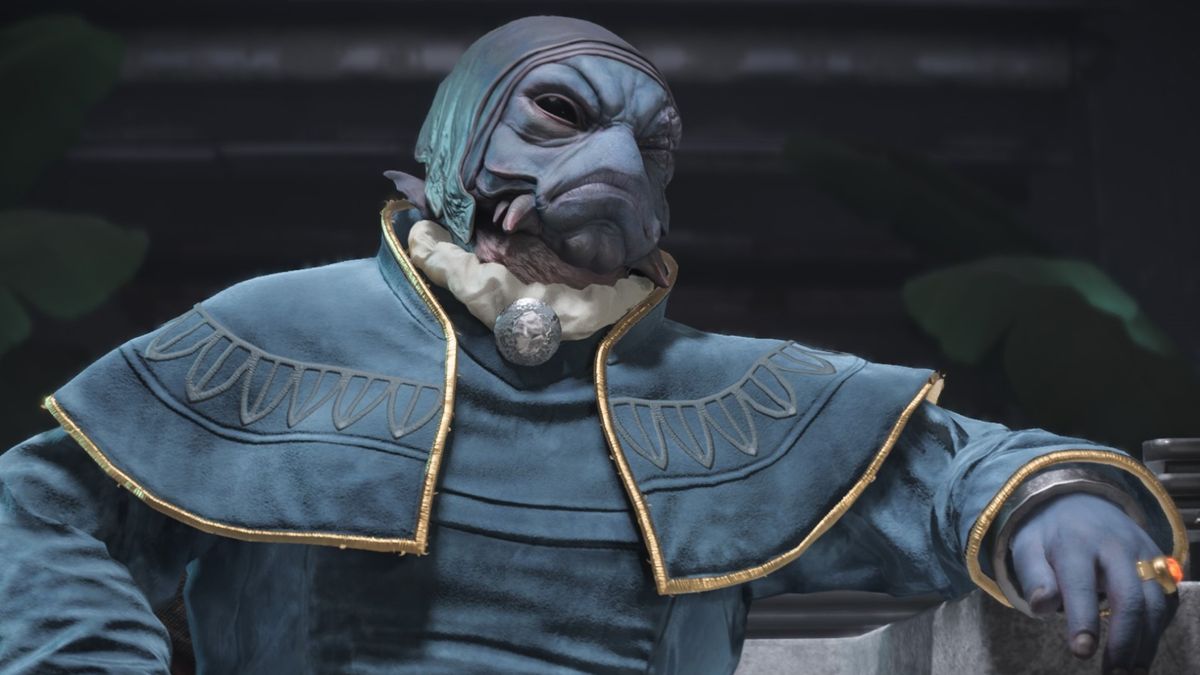
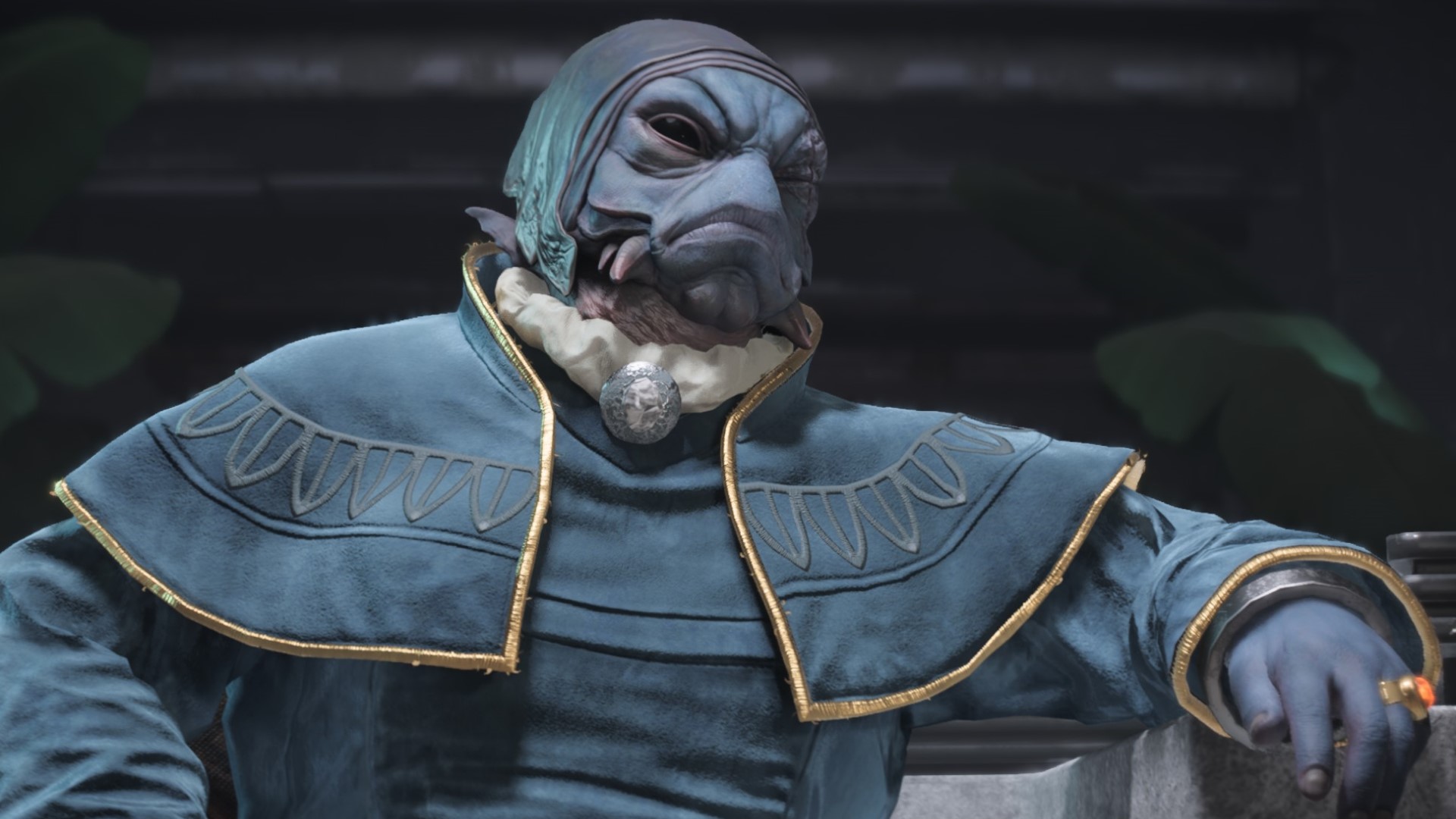
© Massive Entertainment
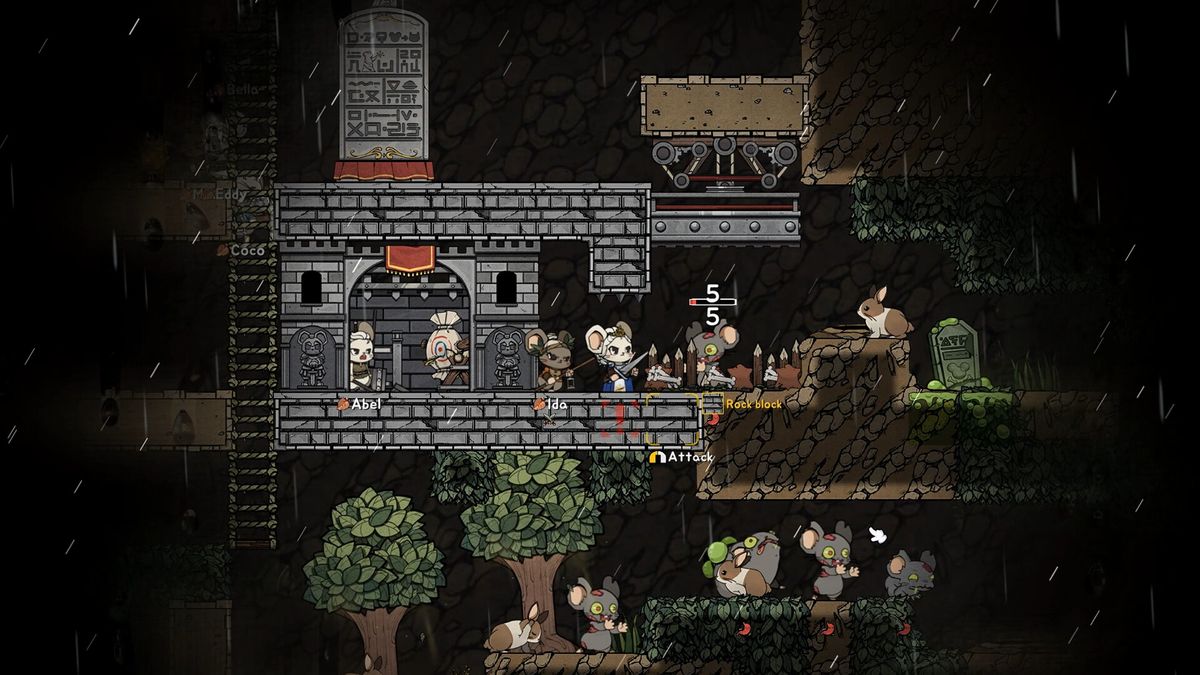
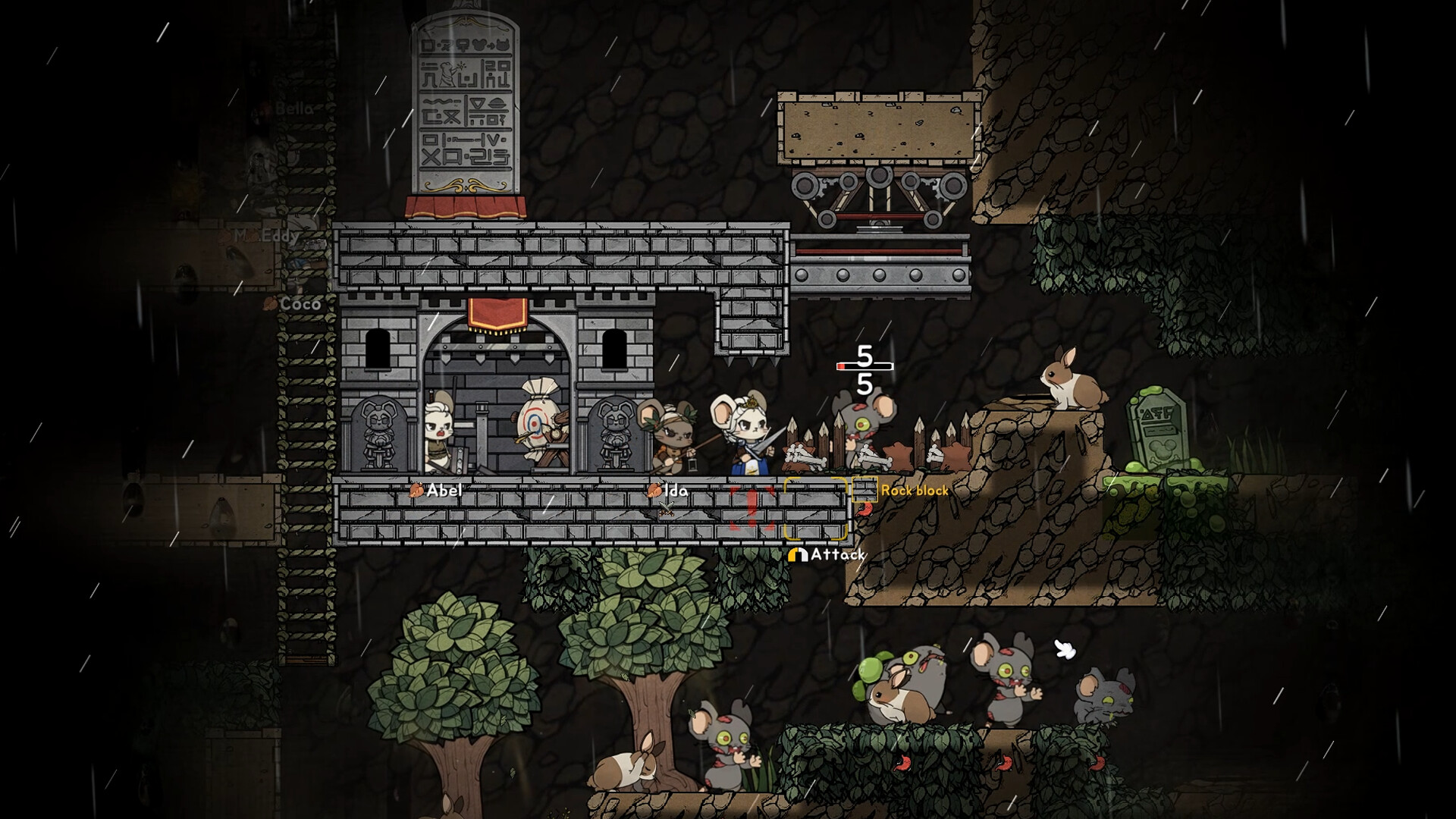
© Cassel Games

It's officially Star Wars Day, but it isn't just an empty celebration because there's actually a new animated Star Wars series to stream right now and we've reviewed it! Tales of the Underworld dives into the lives of assassin Asajj Ventress and the infamous bounty hunter Cad Bane as they navigate their way through the underworld of the Star Wars universe. This is the third entry in the "Tales of" anthology series following Tales of the Jedi and Tales of the Empire.
Both main characters were introduced by Dave Filoni in the Clone Wars series, and these episodes seek to develop those stories even further. If you're hoping to watch some brand new Star Wars content this weekend, we have all of the details below.
The long and short of it is that Star Wars: Tales of the Underworld is available to stream exclusively on Disney+. There was indeed a virtual watch party for the first two episodes in Fortnite on Friday, but if you missed that then the only avenue available to you is Disney+. It is the primary streaming service for all things Star Wars now that Disney owns Lucasfilm.
If you don't already have a Disney+ subscription, you actually have a number of options available to you to help you save some money. The overall best deal is the Disney+, Hulu, Max bundle that brings all three of the services into one package. There are also a variety of other Disney+ bundles to choose from if you don't want to pay for just the service by itself.
Unlike many of the other major Star Wars shows, Tales of the Underworld as a series is releasing all at once. There are a total of six episodes and you can start watching all of them right now.
If you aren't familiar with the main characters of this series, you may want to start by watching some of the best episodes of Clone Wars first. Otherwise, here is a quick synopsis of the series directly from Disney+:
"Enter the galaxy’s dangerous underworld in this six-episode journey through the experiences of two iconic villains. Former assassin and bounty hunter Asajj Ventress is given a new chance at life and must go on the run with an unexpected new ally, while outlaw Cad Bane faces his past when he confronts an old friend, now a Marshal on the opposite side of the law."
Looking for more Star Wars? Take a look at our guide to all of the upcoming Star Wars movies and shows.
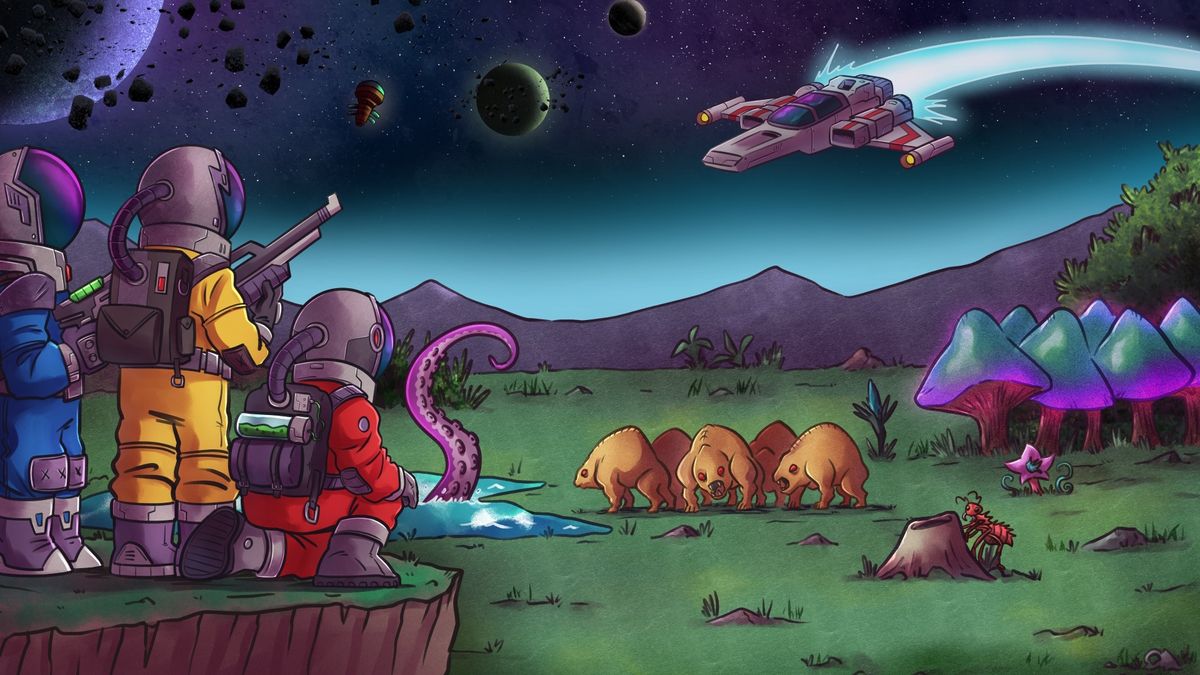
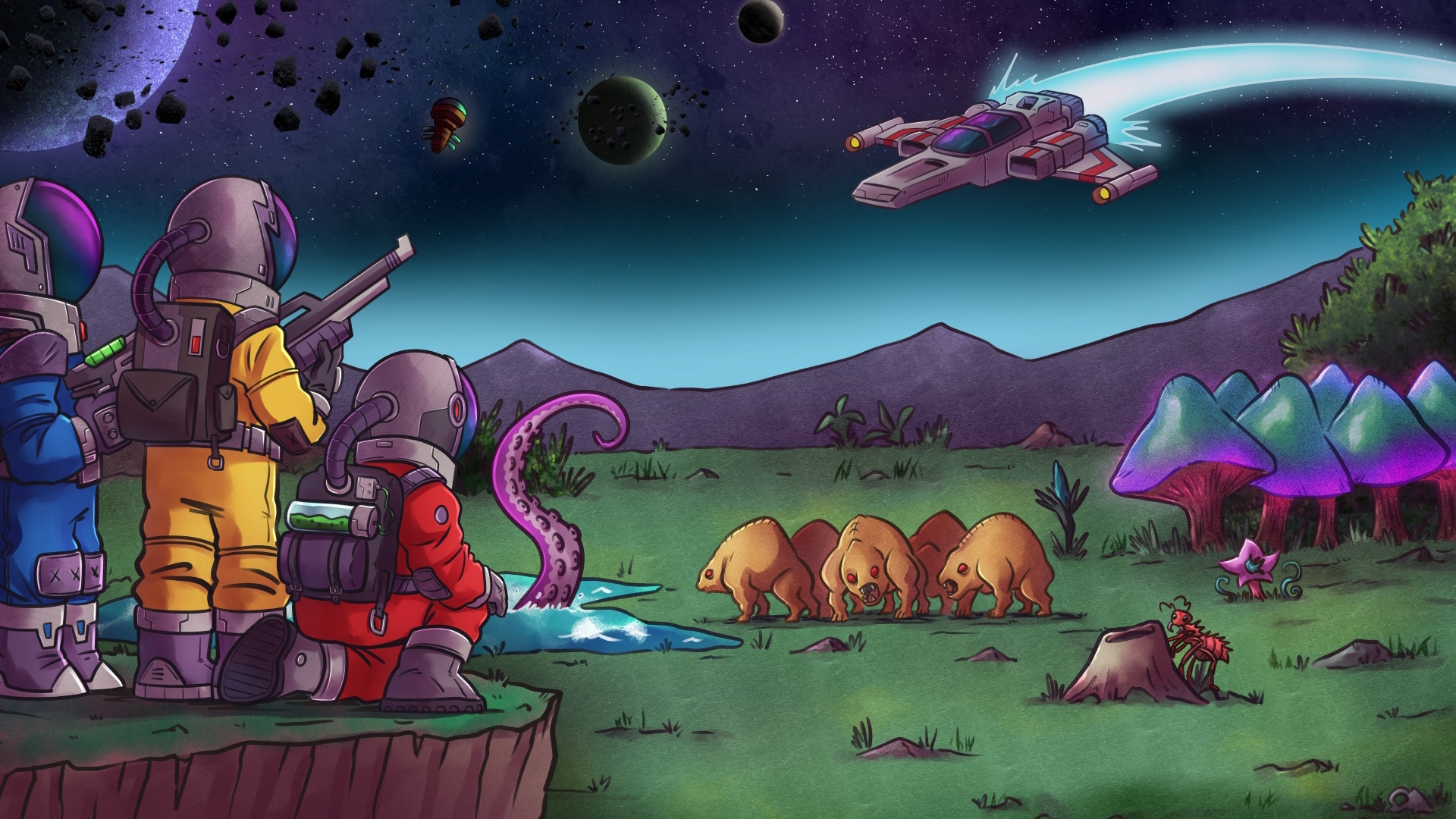
© Ibology
Last week, Stefano Cagnani released a demo for his fan remake of Dino Crisis 2 in Unreal Engine 5. Now, the reason I did not share this project back then was because it was put behind a pay wall. Thankfully, though, Cagnani has decided to make the demo free to everyone. Since this is created … Continue reading Free Dino Crisis 2 Fan Remake Demo in Unreal Engine 5 Released →
The post Free Dino Crisis 2 Fan Remake Demo in Unreal Engine 5 Released appeared first on DSOGaming.
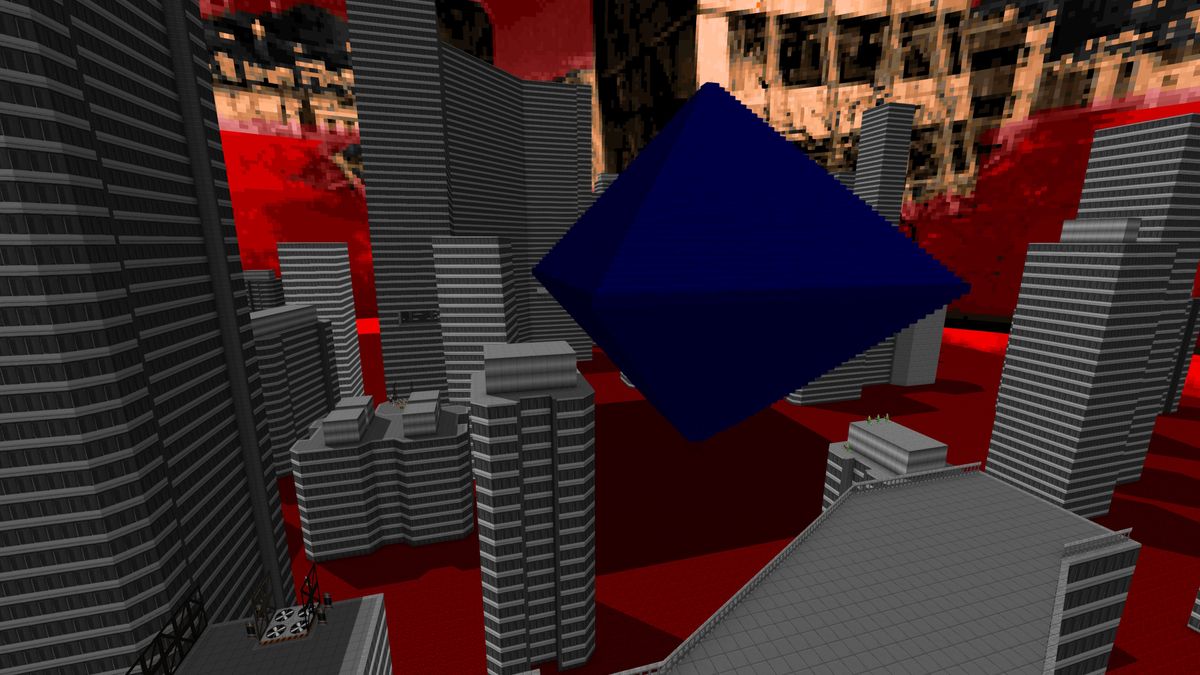
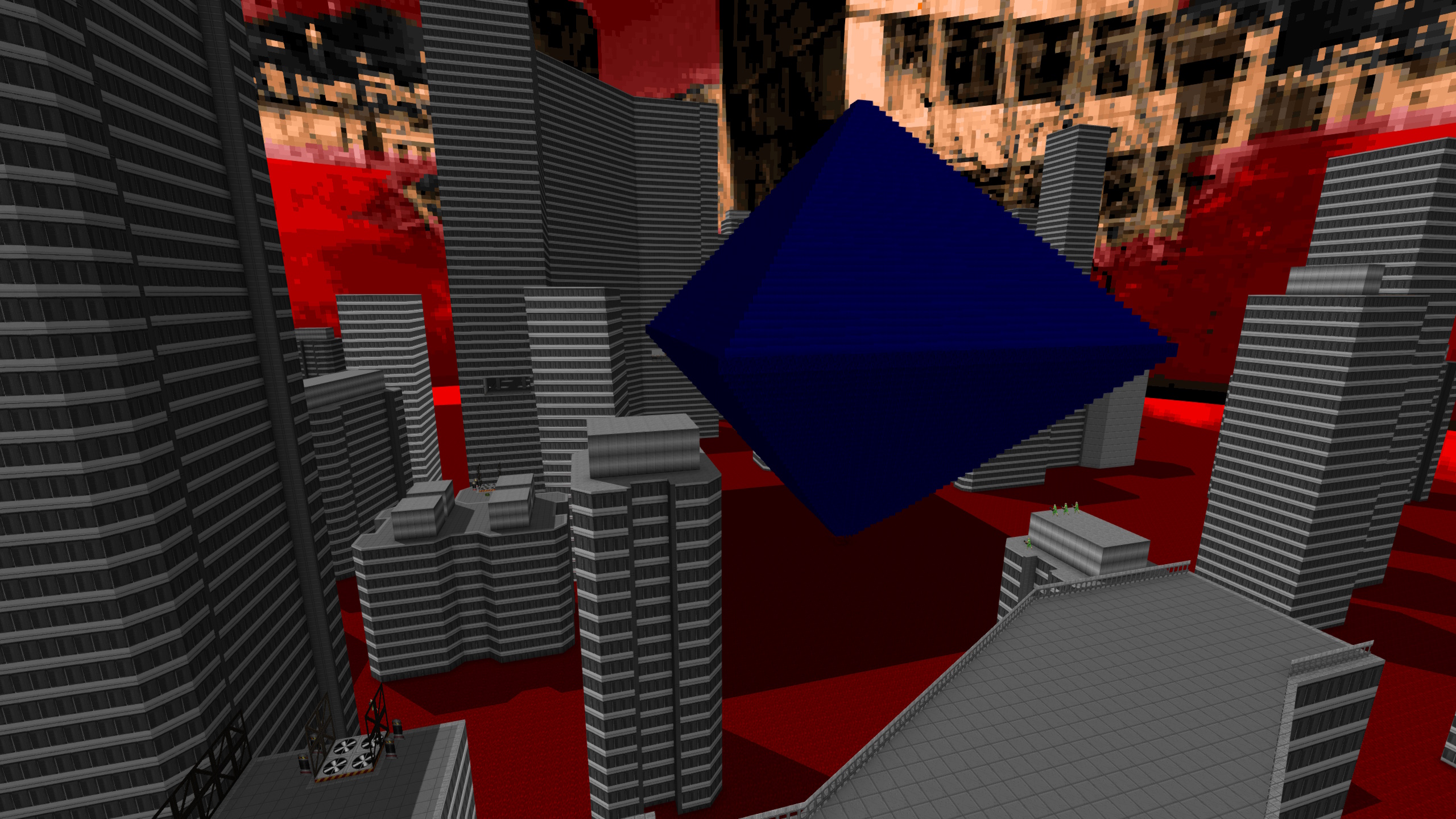
© Id Software

Tales of the Underworld debuts on Disney+ in full with six episodes on May 4, 2025.
Theoretically, Lucasfilm Animation’s Tales anthology is an interesting method of expanding the stories of characters introduced in the Star Wars prequels, their animated spin-offs, and live-action Disney+ follow-ups – figures like Ahsoka Tano, Count Dooku, or Asajj Ventress, who’ve become as essential to this fictional universe as any Skywalker. In practice, though, Tales of the Jedi, Tales of the Empire, and now Tales of the Underworld have proven uneven and inconsistent. Tales of the Underworld exemplifies this more than either of its predecessors, with one storyline that mostly succeeds and one that mostly fails to bring new, meaningful dimensions to its protagonist.
This round of Tales once again focuses three of its bite-sized, approximately 15-minute-long episodes on one character, and three on another: First former Separatist assassin Asajj Ventress, then infamous bounty hunter Cad Bane. Both arcs offer bountiful treasures for your eyes and ears; Lucasfilm Animation is showing off at this point, having perfected their painterly art style. Tales of the Underworld looks even better than The Bad Batch and the other Tales series, with absolutely stunning textures, lighting, and water physics. The music also stands out: It’s not conventionally Star Wars, but it’s a welcome shift that makes Tales of the Underworld feel fresh and distinct.
It may also set a new standard for Tales voice acting, too. Corey Burton and Nika Futterman have two of the most iconic voices in the business, and they continue to make the most of their depictions of Bane and Ventress. (To the degree that it almost makes Bane’s storyline a bit confusing – more on that below.) As a fan of FX’s Reservation Dogs – and specifically Lane Factor’s performance in it – I was surprised and pleased to hear Factor making his voice-acting debut in Tales of the Underworld, bringing his endearing and honest energy to Ventress’ new friend Lyco.
Beyond its presentation, though, Tales of the Underworld under-delivers on the promise of its title. In the first three episodes centered around Ventress, we get none of that sense of seedy underbelly that’s been a quintessential component of Star Wars since Obi-Wan, Luke, C-3PO, and R2-D2 first took a walk on Mos Eisley’s wild side. Instead of plunging into the dark corners of the galaxy, Tales of the Underworld takes Ventress on a mostly lighthearted romp that teaches her an age-old lesson about the value of friendship. There is some good stuff: Inquisitorial action, a fun heist, and some heavy material involving veterans who are unable to let go of their wars. It’s not an unimportant story to tell, but it’s also one that’s already been told by The Clone Wars, Rebels, and The Bad Batch. There’s little reason to bring Ventress back from the dead just to tell it again.
That’s the other disappointment with her story: It already ended once. A canon book called Dark Disciple sees Ventress and the Jedi Quinlan Vos on a path to revenge against Count Dooku. The story was conceived for The Clone Wars, but was turned into a book after the show’s first cancellation. At the end of Dark Disciple, Ventress dies, sacrificing herself to save Vos, whom she (spoiler alert for a 10-year-old book) falls in love with. Tales of the Underworld teases that story, giving us a glimpse of its ending – but it’s in a way that explains how Ventress was almost immediately resurrected, clearing the path for her appearances here and on The Bad Batch. Ultimately it just feels like an unnecessary epilogue in a journey that already felt complete, a long-winded way to keep her on the roster of active Star Wars players without adding all that much to the character.
Bane’s episodes definitely live up to the Underworld name, though, with the scum and villainy on full display. His story is a classic western in three acts set at three successive points in his life. It’s a story of diverging paths and what comes down to a friend breakup, and all the drama that entails. Its melodrama is reminiscent of a telenovela, and it’s honestly better for it. Bane has always been about the drama and theatrics, so it fits his character well.
It’s also a story of class and poverty and the impressions they can leave on a young mind. It’s relatively unexplored territory for Star Wars, and it’s interesting to see a story like that through the franchise’s lens. I bet George Lucas would love these episodes, given the way they rhyme with Anakin’s journey in the prequels. Anakin turned to the Dark Side, but Bane was born in it, and this compelling origin story shows us how he embraced it from the start.
But it too feels a bit underdeveloped. Tales of the Underworld simply doesn’t have the time to fully flesh out the story it’s trying to tell. Bane’s growth into the child-stealing bounty hunter we’ve come to know and love (well, maybe “love” isn’t the right word, but you get the point) is generally well paced, but some of the nuances and details have to be left out.
Maybe a little more breathing room in the running time would have better explained what’s going on with Bane’s accent and voice. He goes from sounding like a normal kid in his first episode to Corey Burton doing an aged-down Bane in the second. For all of Burton’s strengths as an actor, it’s still a jarring transition, especially when none of his peers or fellow Duros share Bane’s accent or way of speaking. It made me wonder why he speaks like that at all. There’s technically a good reason for altering his voice in the first episode, which I won’t go into here. I just don’t think it’s a good enough reason, nor does it explain his unique way of speaking.
In an interview with Lex Fridman, Epic Games’ Tim Sweeney shared the first details about the next version of Unreal Engine, Unreal Engine 6. According to Sweeney, UE6 is a few years away, but we might see preview versions of it in 2 or 3 years. Epic Games is currently working on two different aspects of … Continue reading Epic’s Tim Sweeney shares first details about Unreal Engine 6 →
The post Epic’s Tim Sweeney shares first details about Unreal Engine 6 appeared first on DSOGaming.
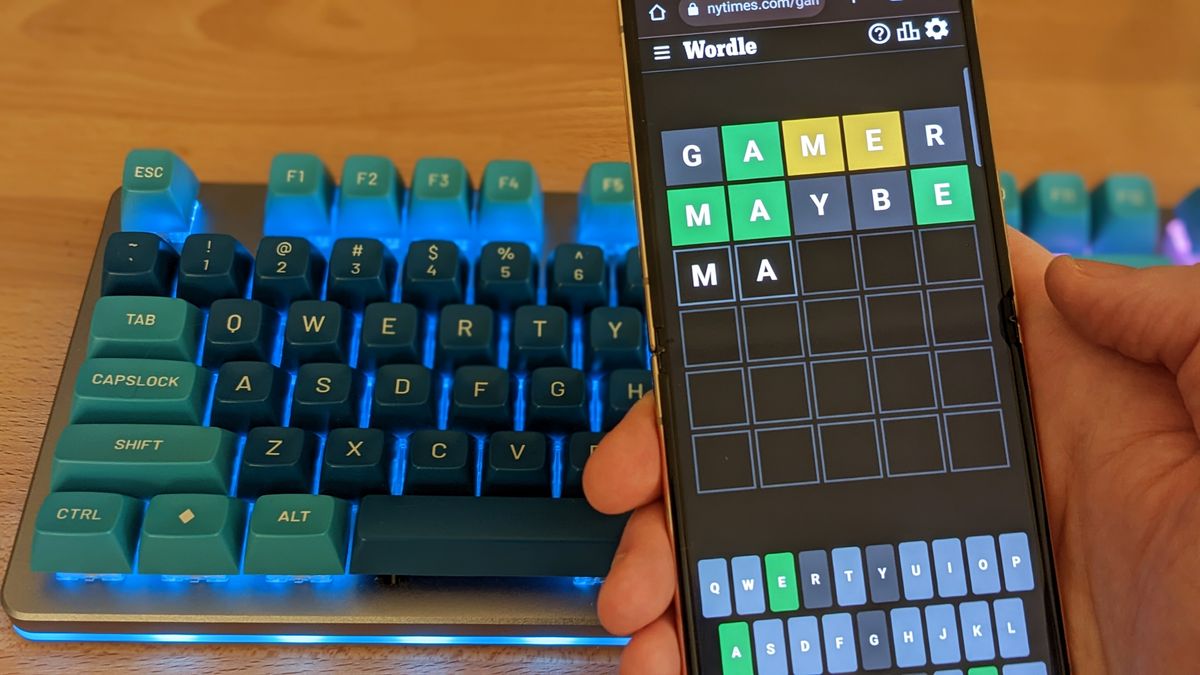
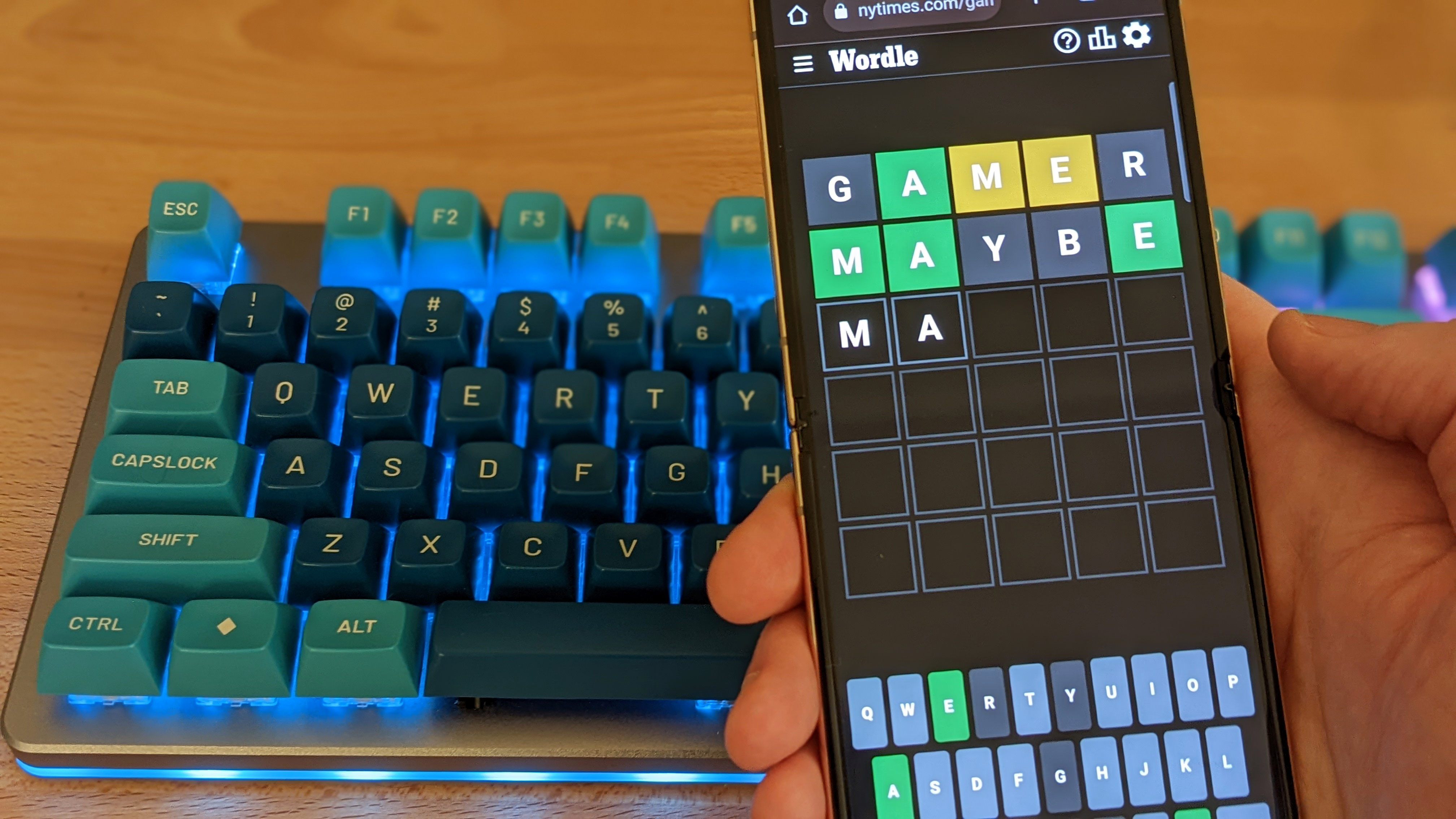
© Future
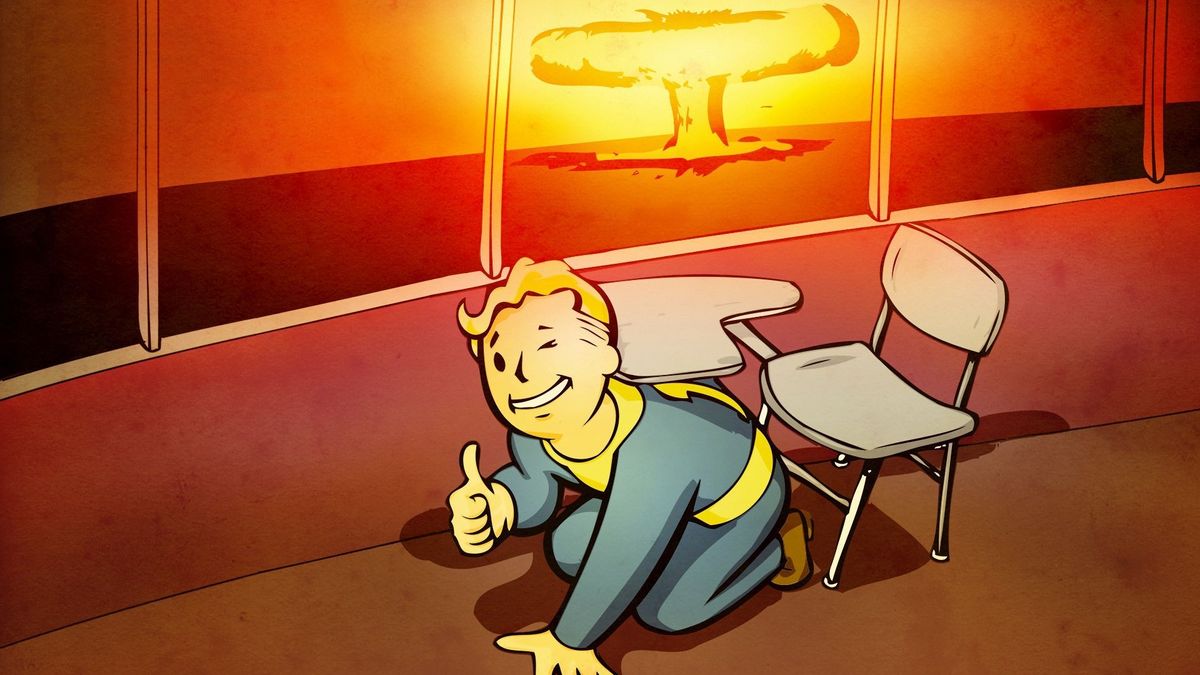
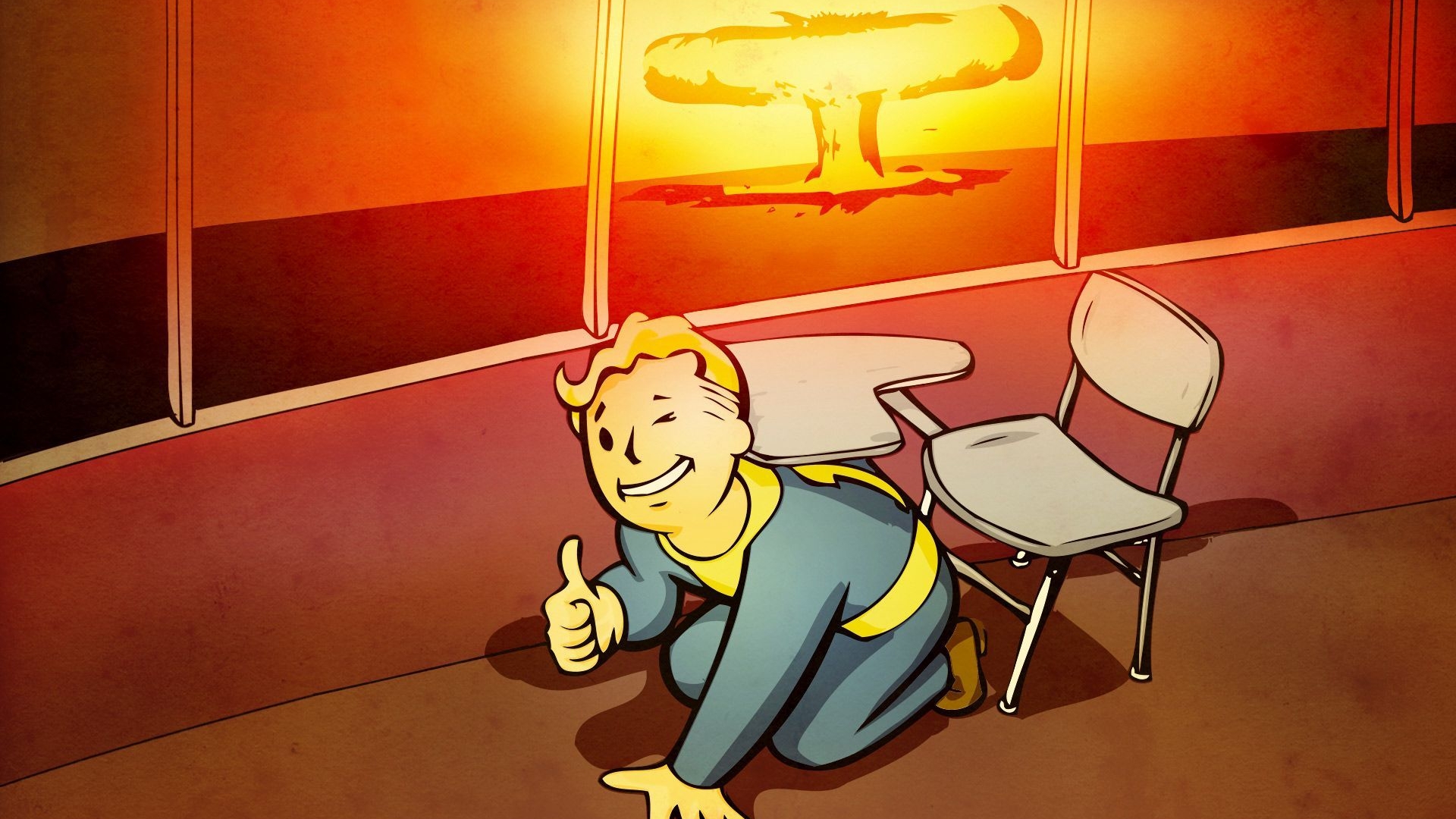
© GOG.com

While nothing has yet been pitched to Marvel, Ryan Reynolds is reportedly in the "early stages" of trying to bring a Deadpool and X-Men movie to life.
As reported by THR, Reynolds' idea for this ensemble film would feature Deadpool, but not as the main character. Instead, he would share the spotlight with three of four other X-Men characters. In fact, it is said Reynolds wants these other characters to take center stage so they can be "used in unexpected ways."
This film, which would be separate from the X-Men movie Hunger Games' writer Michael Lesslie is working on, is seemingly on a similar track as Deadpool & Wolverine. Reynolds is known for working on his ideas on his own for quite some time before pitching them to Marvel, and the early stages of what would become Deadpool & Wolverine saw the film as a low-budget road trip movie.
This also isn't the first time we've heard Ryan Reynolds is working on an "ensemble" movie for Deadpool, but this does give us a bit more context as to what type of adventures the Merc With a Mouth may go on.
As to which X-Men may be joining Deadpool, that is currently anyone's guess. However, Deadpool is no stranger to working alongside X-Men and has already had some members of the team and their enemies in his films, including Wolverine, Colossus, Sabertooth, Pyro, and even Channing Tatum's Gambit.
For more, check out why Reynolds thinks Deadpool shouldn't join the Avengers of X-Men, how Deadpool & Wolverine became the highest-grossing R-Rated film of all time on its way to earning $1.33 billion worldwide, and our explainer of the film's ending so you can see where he currently stands.
Oh, and you can see how the latest MCU film did in our eyes in our Thunderbolts* review.
Have a tip for us? Want to discuss a possible story? Please send an email to newstips@ign.com.
Adam Bankhurst is a writer for IGN. You can follow him on X/Twitter @AdamBankhurst, Instagram, and TikTok, and listen to his show, Talking Disney Magic.

It seems like there’s no shortage of compelling content to stream in 4K these days, and on Max, you’re spoiled for choice. Timothée Chalamet-verse essentials like Wonka and Denis Villeneuve’s Dune duology sit side by side with acerbic dramedies like The Righteous Gemstones and The White Lotus. But if you’re new to the platform you may be wondering how you can upgrade the viewing experience and ensure you’re watching all of your most anticipated movies and TV shows in the highest fidelity possible. If that’s you, read on, as our guide will explain the ins and outs of how to stream Max movies and shows in 4K – if you aren’t doing so already.
When it comes to picking a subscription plan for Max, there are three options available: Basic with Ads, Standard, and Premium. As with most streaming platforms (like Netflix), the only plan that allows for 4K streaming is the most expensive Premium plan. It’s also worth noting that Max also offers a bundle that includes Max, Disney+ and Hulu at a discounted price. However, while there are two bundle options – With Ads and No Ads – neither plan includes the 4K Premium Plan features at this time. This means you won’t have access to 4K streaming if you end up going with the multi-platform bundle.
Here are the current Max U.S. plans and their prices:
Once you’ve chosen your plan, you’ll need to verify that your setup can handle streaming Max’s 4K content. This means that your display, whether it be a monitor or a Smart TV, must support 4K resolution streaming. Furthermore, any external streaming devices like an Apple TV or Roku device must support 4K. Because you’re here on IGN, it’s worth pointing out that if you’re using a console like a PlayStation 5 or Xbox Series X to stream content, you already have an external device that supports streaming Max in 4K. Last but certainly not least, the cables and ports you’re using to link your TV and external device need to be high quality, or this could cause issues with 4K streaming. External devices will need to be plugged into a HDCP 2.2 HDMI port using a High-Speed 4K HDMI cable to make the most of 4K streaming on Max.
If you’d like to check whether your current equipment is up to the task, Max has a list of compatible devices on their website that you can refer to.
Beyond devices and cables, your internet connection also needs to be strong enough to stream content in 4K. MAX suggests a minimum of 25Mbps, but recommends 50Mbps for the best results. It’s worth mentioning that there is no account setting to force Max to stream in 4K, and Max will just adjust its streaming quality in accordance with your ‘network bandwidth and connection speed.’ So if the requirements are met, applicable content on Max should automatically stream in 4K.
You can check whether the content you’re looking to watch is available in 4K, by selecting the film or tv show from the in-app menu and looking for the ‘4K’ or ‘4K UHD’ tag underneath the title.
HBO has a reputation for producing legendarily bingeable box sets like The Sopranos and Succession. Thanks to the popularity of said shows and their avid fan bases, many of these titles have been released physically as 4K Blu-ray box sets. George R. R. Martin acolytes can find the full Game of Thrones series in 4K, as well as the first two series of its drama-filled prequel House of the Dragon. Many of the movies available on MAX also have a physical Blu-Ray counterpart, such as 2024’s Twisters and 2021’s The Matrix Resurrections.
As we’re often reminded, we don’t actually own the digital content we pay for. This means that owning the physical versions of your favourite films or TV shows is the only way to ensure the content can be rewatched forever – regardless of a faulty internet connection or future licensing issues.
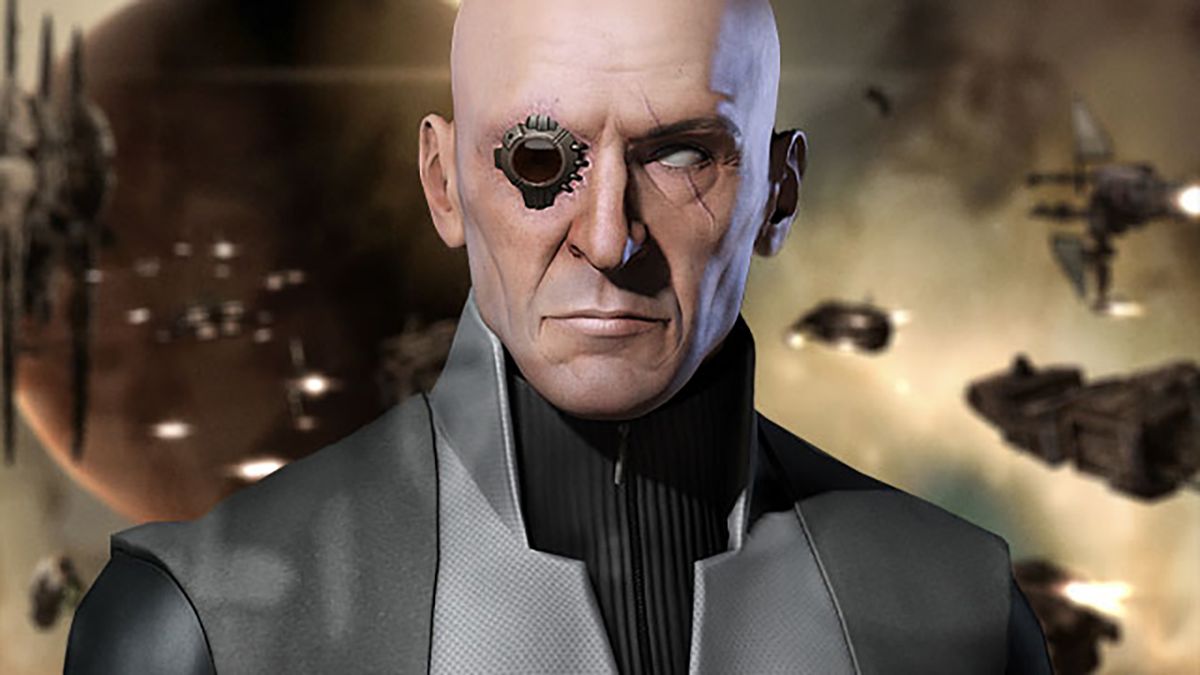
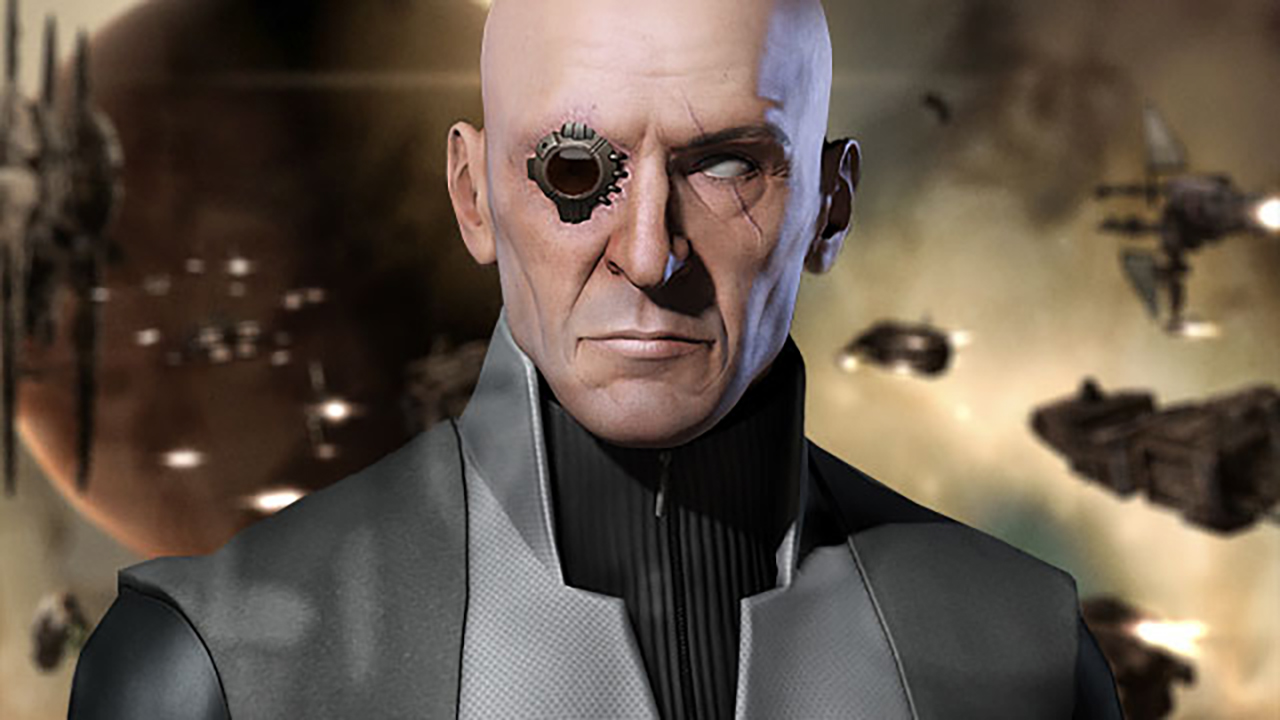
© CCP Games

The weekend is officially here, and we've rounded up the best deals you can find! Discover the best deals for May 3 below:
Monster Hunter Wilds is still one of the biggest games of 2025, and you can save $15 off the PS5 version for a limited time at Woot. This is by far the most beginner-friendly Monster Hunter to date, with new features like Focus Mode that allow you to approach fights in new ways. In our 8/10 review, we wrote, "Monster Hunter Wilds continues to smooth off the rougher corners of the series in smart ways, making for some extremely fun fights but also lacking any real challenge."
First up, you can save $50 off the newest iPad. Powered by the A16, the newest 11th-generation iPad is an exceptional addition to any workspace. You can use this device with both Apple Pencil and Magic Keyboard Folio to make the most out of it without having to go for the iPad Air or iPad Pro.
Ghost of Yotei is finally up for pre-order at Amazon. Set in the Hokkaido region in 1603, you'll play as Atsu to gain revenge on those who killed your family. While not much has been revealed for this game yet, we can expect Yotei to play very similarly to its predecessor, Ghost of Tsushima.
Visions of Mana released at the end of August, and it's available on sale for the first time this weekend. This is the first new Mana game in almost two decades, starring a cast of characters on a quest to save the world. In our 8/10 review, we stated, "Visions of Mana finally brings the long-dormant classic RPG series into the modern age, looking great and playing even better thanks to multi-layered class and skill systems that interact in clever ways."
Xbox announced this week that the Xbox Series X will increase in price by $100 in the United States. This puts the almost five-year-old console at $599.99, but you can still score an Xbox Series X for under its previous MSRP at Amazon right now. At $479.99, you're saving $120 off the new price of Xbox Series X, and there's no telling when or if we will see it this low again soon.
LEGO Star Wars: The Skywalker Saga is by far the biggest LEGO game available, with hundreds of characters to collect across numerous planets. You can pick up the game for just $10 at Amazon right now for PS4, making this a deal you won't want to pass on. All nine films are included in this game, with characters from newer Disney+ Star Wars series as well.
With the recent reveal of Nintendo Switch 2 Edition games, it's no question that you are going to want to save anywhere you can. The Nintendo Switch 2 Edition of Super Mario Party Jamboree is set to cost $79.99, but you can upgrade from a Nintendo Switch copy for presumably $20. This weekend, save your cash and pick up a copy of Super Mario Party Jamboree from Woot for only $44.99.
MindsEye is a new story-based, single-player action-adventure game. Developed by Build A Rocket Boy, it will come out on PC on June 10th. Strangely, there’s no official gameplay trailer for it yet. But luckily, YouTuber Punish shared a video showing 3 minutes of gameplay. In this game, you play as Jacob Diaz. Jacob is a … Continue reading Here are 3 minutes of new gameplay footage from MindsEye →
The post Here are 3 minutes of new gameplay footage from MindsEye appeared first on DSOGaming.
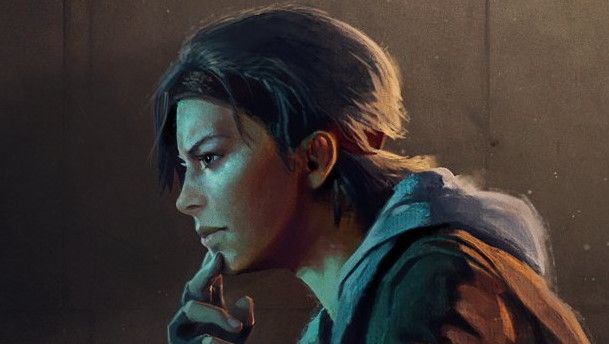
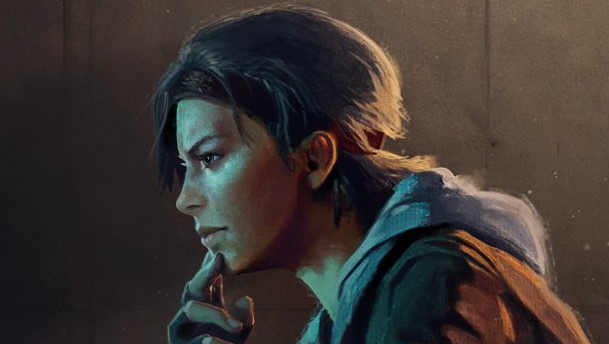
© Valve
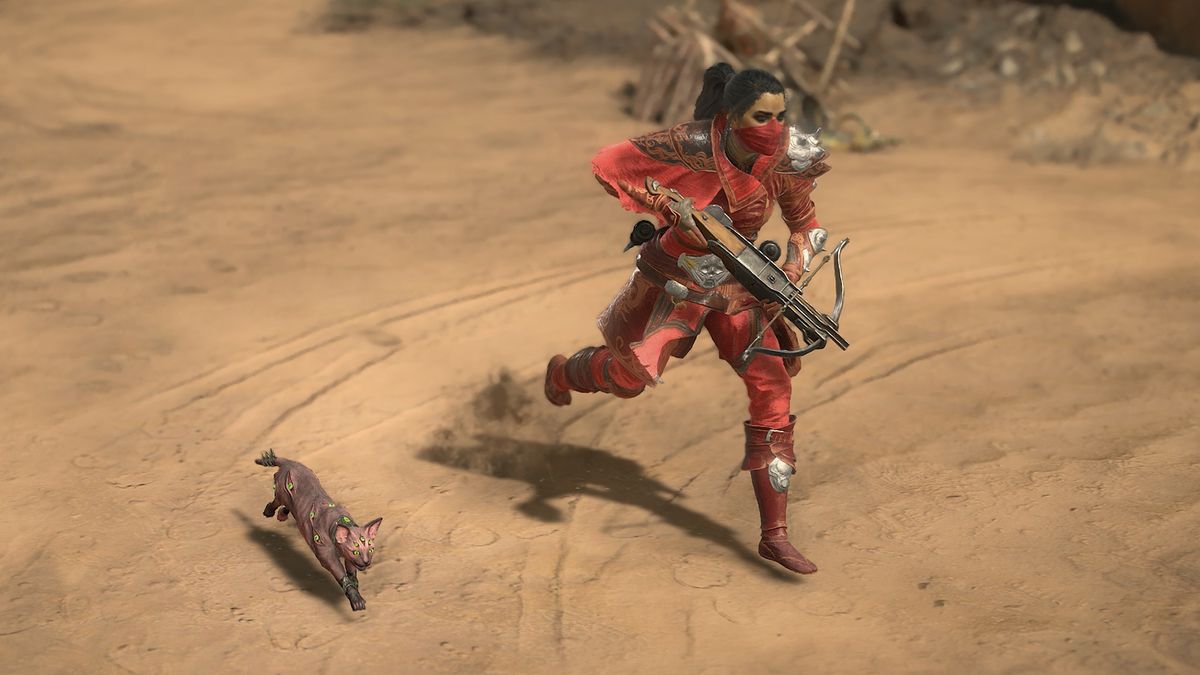
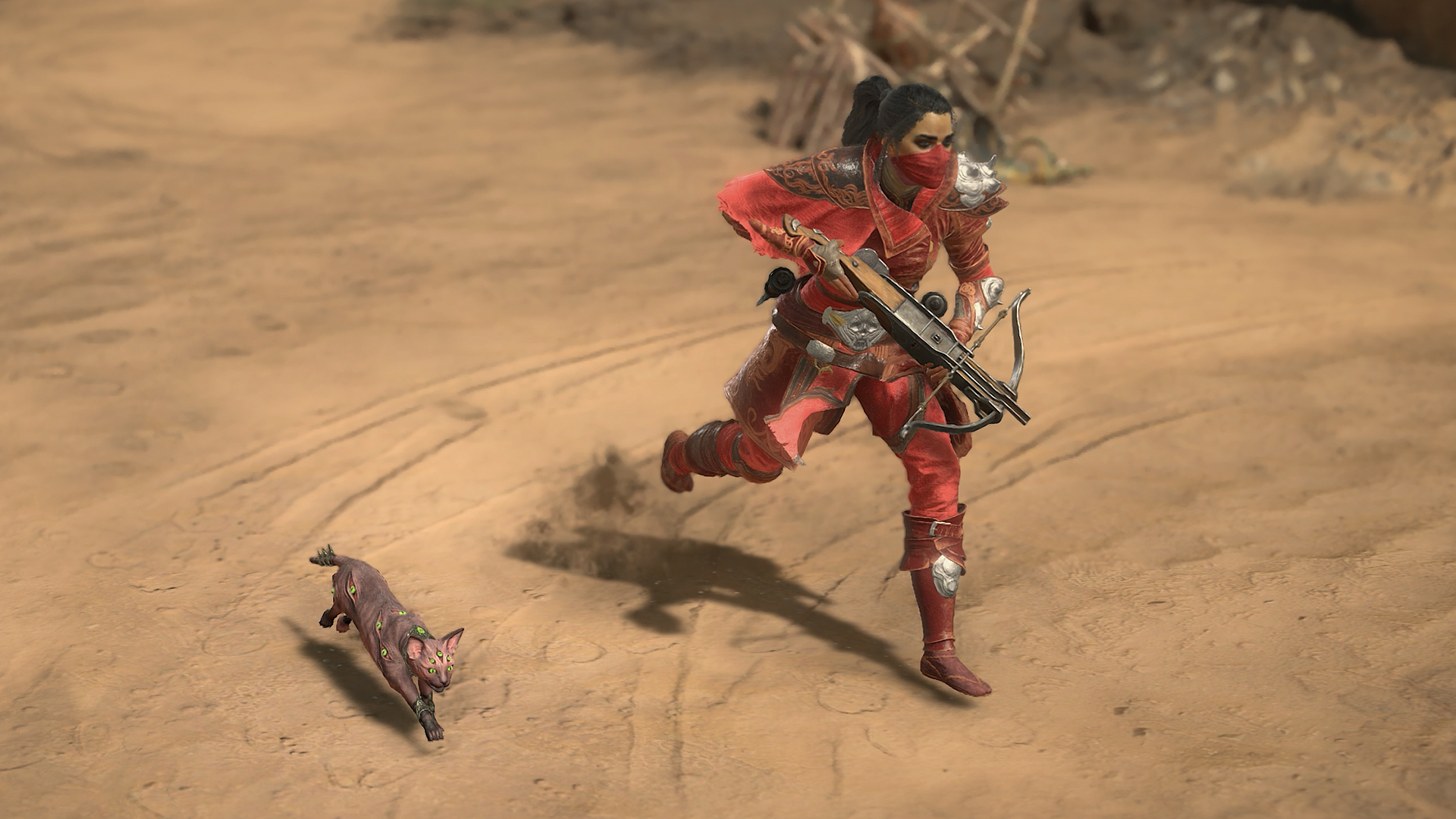
© Blizzard

Brian K. Vaughan's and Fiona Staples' celebrated series may not quite be finished yet, with Vaughan stating he envisions the long-running Image-published comic to run for 108 issues. Currently at issue 72, now is the perfect time to jump into Saga, and what better way to start the series than digitally? You have a handful of options to get the incredible space fantasy story on your mobile device or reading tablet, and we've broken them down for you here.
To start, get your feet wet by trying out Saga #1 for free, no strings attached. This is the perfect way to see if this kind of story is the right fit, and you also get to appreciate pages and pages of Fiona Staples' amazing art. This is available directly on Image Comic's website.
The entirety of the available Saga run is yours to read for free through Hoopla. Be aware, however, that reading through Hoopla comes with a caveat: you have to link an existing library card with your account and choose from your nearest local library. You can only check out what that library has in stock, so if you're not in a major metropolitan city, your mileage may vary. All-in-all, though, Hoopla is one of the best places to read comics for free online and it works great for free books as well.
ComiXology Unlimited through Amazon is easily the best way to read any comic book online. With Saga, you can even get the entirety of the Volume 1 collection (issues 1-6) for free with a 30-day free trial. Once you're caught up on the available story, you can switch to appointment reading by purchasing single issues as they release every month.
GlobalComix is a newer, creator-focused reading and distribution platform that helps creators track analytics and monetize their digital comics. While their overall selection is relatively sparse compared to these other avenues, they do have Saga available. Sign up is free, too!
A lot of comics fans prefer physical media, myself included. Luckily, you can purchase multiple volumes and editions of the collected story so far, and most of them are even on sale at Amazon every now and then. You can pick up the regular trade paperbacks, which are currently up to Volume 11 (Volume 12 is coming May 13), or grab the oversized Saga: Compendium 1, which collects issues 1-54, which is currently on sale.
Myles Obenza is a freelance writer for IGN. Follow him on Bluesky @mylesobenza.bsky.social.

Battery life is a huge point of contention among smartwatch users right now, especially given that it’s such a hassle to have to constantly charge an ambient device that’s meant to track lifestyle patterns in the background and provide quick information cues while posing as a timepiece. After one full week of testing the OnePlus Watch 3 against my older-model Apple Watch Series 6, I've found the OnePlus Watch 3 to be a fashionable little Andoid device that excels in several big areas while stumbling in others. But even with a battery that seems to keep a charge for several days in Smart Mode, its moment-to-moment tracking capabilities didn't quite live up to the polish of its exterior… until I manually activated its workout mode, after which it held its own against the Series 6 when I tracked workout performance side-by-side.
The OnePlus Watch 3 makes a strong first impression with its big and bright 1.5-inch LTPO AMOLED display and stainless steel frame. The crown and touchscreen offer precise navigation through menus, while the dedicated workout button provides quick access to fitness functions – a thoughtful touch for active users who want to quickly jump into their routine, and it isn’t too different or unfamiliar for a longtime Apple Watch user to figure out intuitively. However, the included fluoro rubber wrist strap is a major disappointment that immediately gave me trouble upon first setup; it’s ugly and cheap-feeling, and the lugs detach too easily, making it difficult to wear securely without randomly snapping off. And that undermines the premium feel of the watch itself.
The 466 x 466-resolution AMOLED screen offers bright and crisp visuals with vibrant colors that pop even under direct sunlight, thanks to excellent contrast at 2,200 peak nits. Its bigger size and brighter screen make it easy to read notifications and workout metrics at a glance. Touch responsiveness is also snappy and precise, with smooth animations that make the interface feel fluid and slick. My Apple Watch Series 6 doesn’t have this same internal slickness anymore, and upon first setting up the Watch 3, I felt a little bit of new tech euphoria from how fast its Snapdragon W5 and BES2800 chips make it feel, even with Power Mode turned on. The haptic feedback deserves special mention: each vibration feels refined and intentional rather than buzzy or jarring.

The watch’s crown is shaped in a sharp-looking pyramid pattern designed for precise control. Once I put the watch on my wrist for the first time, it immediately felt way more sophisticated than what I’m used to, and I kept coming back to this distinction whenever I reached for words to explain why the OnePlus Watch 3 feels so premium. The pancake-shaped crown of the Series 6 is such a small detail (literally), and yet it makes the watch feel small by comparison. Like a toy rather than a timepiece. The only downside to the OnePlus Watch 3’s outward aesthetic design, aside from its wristband, is that it’s only available in Emerald Titanium and Obsidian Titanium colorways. Both of these are boring in comparison to its competitors – both the Google Pixel Watch 3 and Samsung Galaxy Watch 7 can be customized a bit, while the Apple Watch Series 10 has a much larger collection of aluminum and titanium colorways. Even the Series 6 had way more customizability in terms of size and color.
Water resistance is rated at 50 meters, which should theoretically make it shower and swim-friendly. However, I encountered issues with water on the screen triggering false inputs and causing erratic behavior, forcing me to remove it during showers – something I've never had to do with my Apple Watch. This raises questions about its practical water resistance in daily use. Of course, the Apple Watch isn’t perfect in such conditions either, but it usually stops being interactive (as in, none of my inputs or presses do anything) rather than invasive, as the OnePlus Watch 3’s touchscreen became when I tested it during a short ten-minute shower.
Battery life is where the OnePlus Watch 3 truly shines. After the average full day of use, including casually moving around my apartment and doing chores, receiving daily notifications, and tracking a light workout or two (typically walking for an hour or playing the VR fitness game Supernatural), the battery dropped by only around 15% on average. For the record, my Apple Watch was left at around 20% by the end of each day, without fail, no matter what I was doing. Given the age of my Apple Watch, its shorter battery life is somewhat expected due to predictable battery degradation over the years. Even so, the difference between what I was previously used to (only having to charge the Apple Watch every two or three days) is still remarkable when the OnePlus Watch 3 could easily last five days on a single charge. Smart Mode needs to be enabled to get the most out of this, but it’s simple to set up in the watch’s onboard interface.

The Watch 3 includes standard smartwatch sensors for heart rate, blood oxygen (SPO2), and movement tracking. It also features wrist temperature tracking, though this requires five days to establish a baseline before providing meaningful data. Wrist temperature may seem unconventional at first glance, but that data stream is incredibly useful for things like the Watch 3’s 60 Second Health Check-In feature, which gives an all-in-one contextual summary of my overall well-being. It’s a little frustrating that I need to get on the OHealth phone app to make that happen instead of doing it all on the watch – it’s decently easy to set up, but I don’t want to have to pull my phone out for something that feels like it should run easily on the watch alone. At least the results are comprehensive thanks to the Watch 3’s onboard PPG (photoplethysmography) sensor and ECG (electrocardiography) sensor working in tandem. Unlike the Apple Watch, it lacks AFib detection capabilities in the United States and Canada, which could be deal-breakers for users with specific health concerns.
For fitness enthusiasts, the OnePlus Watch 3 offers detailed workout tracking for various activities. During walks, it captures metrics like heart rate zones, pace, calorie burn, and distance traveled. Of course, not all walks count as outdoor activities – when your workouts take you outdoors, whether you’re walking or running, the Watch 3’s excellent GPS tracking creates route maps with elevation data. The GPS-routed maps look bright and detailed on the watch’s screen, and don’t seem to be reliant on proximity to the Android phone that the Watch 3 is paired to. In fact, Bluetooth connectivity between the Watch 3 and my Samsung Galaxy S23 Ultra has been nothing short of excellent, seamlessly reconnecting whenever I returned home and the devices were together again.
Setup is not particularly intuitive for someone coming from the Apple ecosystem. Getting in requires downloading the OHealth companion app, and its interface feels more complex and requires deeper familiarity with Google services and Android structure that I’m still getting the hang of. Mainly because I am not the primary user of the phone – and especially since an additional OnePlus account is required to even begin pairing the watch to the phone, it was difficult to get things aligned properly. It’s not a huge deal as I was able to sort everything out in less than 20 minutes, but YMMV.
For the record, I understand that the vast majority of people who will be interested in the OnePlus Watch 3 aren’t going to feel these concerns – they’re already Android-savvy, they already know what they’re doing, and (as I imagine what the pushback in the comments section will look like) they don’t want to hear some Apple fanatic complain about complicated interface structure. Totally fair! Still, the companion app layout is organized in ways that caused me some extra frustration and took time to learn, and that probably isn’t going to attract non-core users into Android’s ecosystem if they’re not already in the mix.

Onboard UI navigation is straightforward once you learn the basics – swipe down for quick settings, up for notifications, and use the crown to scroll through menus or apps. The user interface is responsive with minimal lag when moving between screens. Using apps like Spotify and Google Calendar is also seamless, sleek, and highly responsive.
The OnePlus Watch 3 runs on Wear OS, which is basically the same thing as Apple’s watchOS by any other name. Of course, instead of tying into the Apple ecosystem it instead grants direct access to Google's ecosystem of apps and services. For example, giving the user the option to store health data in Google Fit, pushing data via notifications from Gmail, and granting access to Google-specific applets (Google Play Store, Google Maps, etc) found directly in the watch’s central menu. This is no different from any other Android smartwatch in practice, but I’d like to imagine the Watch 3 simply does a better job of running its services than all the others, due in part to its powerful battery and advanced Snapdragon 5 chipset. Upon this foundation, OnePlus has added its own layer of customization with attractive-looking exclusive watch faces and health features – like its Vascular Health check-in feature that uses several sensors to determine how close the user is to being at risk of developing severe heart disease. Fortunately, I’m still over the green line of what is considered “Normal” vascular health for a 31 year old, but I wouldn’t have known this if I hadn’t reviewed the Watch 3. It could be a powerful warning tool that informs long-term health decisions, even without Afib detection.

Sleep tracking on the OnePlus Watch 3 provides detailed breakdowns of sleep stages, including deep sleep, light sleep, REM, and awake time. It also offers a sleep score and breathing quality assessment. While these metrics seem comprehensive, I'm still evaluating their accuracy compared to other dedicated sleep trackers. For the most part, the Watch 3 seems to track closely to my Apple Watch Series 6’s readouts. Additionally, the automatic sleep mode activation is a nice touch that dims the display and reduces notifications when it detects the user has fallen asleep.
The watch's fitness interface provides impressively detailed data visualizations. After workouts, it breaks down heart rate zones with time spent in each zone, shows pace variations throughout routes, and offers insights that Apple doesn't surface as clearly. The "Wellness Curve" is a proprietary metric that attempts to measure your overall physical state based on various health parameters, though I'm still learning how to interpret its fluctuations meaningfully as someone who is still only just breaking in the Watch 3.
Notification handling is pretty standard compared to my experiences. Text messages, emails, and app alerts appear promptly, and you can respond with quick replies or voice dictation. Additionally, the watch does offer Google Assistant integration, which performs well for basic tasks like setting timers or checking weather forecasts, but at this moment it’s not all that perceptibly different from Siri.
Fitness tracking is where the OnePlus Watch 3 shows its most significant weaknesses. Step counting consistently lagged behind the Apple Watch, sometimes by dramatic margins. During one VR fitness session, the Apple Watch recorded 5,255 steps while the OnePlus only registered 1,612 – a massive discrepancy that I’m still trying to wrap my head around, as this was a pretty consistent occurrence. On one hand, I use Supernatural for my primary VR workouts, which is attuned to my Series 6 and (from my understanding) feeds in extra contextual data to Apple Health. But on the other hand, this pattern continued throughout testing, with the OnePlus Watch typically recording about 25-30% fewer steps than the Apple Watch whether I was working out in Supernatural, doing a core workout, or playing some other high-intensity VR game like The Thrill of the Fight. When not in workout mode, the Watch 3 also seems to update step counts in bursts rather than in real-time, sometimes missing passive movement entirely.

At one point I saw the number of recorded steps suddenly drop from around 2,500 to 1,700, only for the step count to level out later in the day and become nearly equal to the Series 6’s step count after recording an outdoor walk. This is bizarre, considering that I wore both watches at the same time, at all times. It’s highly possible that the Watch 3’s fitness tracking mechanisms need time to calibrate to the user, but it seems like the only way to get the Watch 3 to accurately track daily steps is by taking it on long stretches of outdoor activity where it can deliberately track movement over a longer period of time.
In fact, workout tracking showed way more consistency with calories burned and heart rate measurements generally aligning with the Apple Watch's readings. During a brief core training session, both watches reported similar calorie burns (30 vs. 27 active calories) and average heart rates (120 vs. 115 BPM). The OnePlus Watch did provide more detailed heart rate zone analysis than I’m typically used to, breaking down time spent in warm-up, fat burning, and endurance zones.
GPS accuracy during outdoor activities was pretty good, with the OnePlus Watch recording slightly longer distances than the Apple Watch (4.04 vs. 3.94 miles on one walk). This could be due to different sampling rates or algorithms, but the difference wasn't significant enough to be concerning. What was impressive was the battery efficiency during GPS tracking, with minimal drain even after stacking a longer outdoor session together with a full VR workout routine on the same day, dealing with notifications, and so forth. All of that activity still rounded up to no more than 16% battery drain on that day, which is exceptional.

This article contains spoilers for Avengers: Age of Ultron.
As Marvel prepares to launch massive new Multiverse Saga films like The Fantastic Four: First Steps, Avengers: Doomsday, and Secret Wars to try and recapture the franchise’s glory days, it’s sobering to remember that ten years ago the Marvel Cinematic Universe was only just getting to its first Avengers sequel. MCU mania was at an all-time high back in 2015; fresh off the critically acclaimed one-two punch of Captain America: The Winter Soldier and Guardians of the Galaxy, Marvel was on top of the mountain as they kept comic nerds and general audiences invested in the teases for Thanos and the ongoing Infinity Saga. But after Avengers: Age of Ultron, there was a bit of concern that the franchise was going through some growing pains.
Age of Ultron wasn’t hated, mind you. It received mostly positive reviews and was a big financial success. But as the franchise moved forward with more beloved films like Captain America: Civil War, Thor: Ragnarok, Black Panther, and the two-part finale of Infinity War and Endgame, Age of Ultron has been relegated to history as the “just okay” Avengers sequel. However, looking back ten years later, the film stands out from the MCU pack as one of the more dramatically ambitious Marvel films, and is perhaps the only one that makes the Avengers feel like a regular part of the universe instead of a team that only shows up for massive events. Let’s take a look at why the MCU should’ve taken a lot more from Age of Ultron.
Before we begin, let’s get one thing straight: Age of Ultron is a mess. It has way too many moving pieces, there isn’t enough runtime for everything it tries to cram in, and it’s a startlingly inelegant feature, whipping from place to place and struggling to find a consistent tone. It’s a movie that is practically buckling at the seams between writer-director Joss Whedon’s narrative sensibilities and its larger franchise obligations. Yet despite these not-insignificant problems, Age of Ultron has always been better than the sum of its parts, and that largely comes down to how it’s one of the few big ticket MCU films that places the emphasis on the anxieties and relationships of its characters over feeling like an event designed to rock the cinematic universe.
Being the middle entry in the Avengers “trilogy” (if we’re semi-cheating and considering Infinity War and Endgame as two parts of one giant movie) was both a blessing and a curse for Age of Ultron. There needed to be a direct sequel to The Avengers, but the larger machinations that had been set in place in regards to Thanos and the Infinity Stones were instead being left for the big finale. When Thanos was first teased in the mid-credits scene of the first film, many fans assumed the Mad Titan would be the villain of Avengers 2. So when Age of Ultron’s title was announced the following year, there was a mix of excitement and confusion. Ultron is one of the Avengers’ most prominent antagonists, if not the archenemy of the team as a whole, but how much of an effect could he really have if we knew he was merely a lead-in to Thanos?
Age of Ultron wisely dismisses the idea that any of its principal characters are in mortal danger and instead focuses on digging deeper into what makes them tick. Tony Stark has become a frenzied neurotic terrified of the oncoming cosmic storm. Bruce Banner is desperate to reach out for a more intimate connection despite still not being convinced he’s not a threat to everyone he cares about. Hell, this is probably the only film in the franchise that makes an effort to give depth to Clint Barton, dramatizing him as a man among gods who nevertheless feels responsible for keeping this team of oversized personalities in one piece. Add in the entire dark side to redemption arcs for newcomers Quicksilver and Scarlet Witch, and Age of Ultron has more dramatic meat for its characters than most of its MCU brethren.
But if we really want to dissect what makes the film work, we have to dig into one of its most controversial aspects: the big bad bot himself.
Despite being based on one of the Marvel universe’s most prominent villains in the comics, the MCU’s take on Ultron hasn’t penetrated the cultural consciousness in the same way Loki or Thanos have. Part of that is a lack of exposure; Tom Hiddleston’s Loki has made numerous appearances in MCU projects, and Thanos was the main villain of two massive films after several teases beforehand. But even taking that into account, MCU Ultron had a decidedly mixed reception from fans, even if James Spader’s slithery line delivery is second to none. However, part of that lukewarm welcome comes down to a misunderstanding of who Ultron actually is in the comics, and what type of character he’s supposed to be.
Many fans lamented that Ultron was a sardonic trash-talker, just as quick with sarcastic remarks and random philosophical musings as he was with laser beams. Numerous social media comments have been written by comic fans claiming they wanted a more “accurate” Ultron who was a cold, calculating menace with no emotion whatsoever. But this isn’t really what Ultron is like in the books at all. Ultron has always stood out from other artificial intelligence villains in fiction by being a character who thinks he’s driven by logic, but is actually one of the most petulant and emotionally stunted villains in Marvel lore. This comes down to the fact that his brain waves are based on his creator: in the source material, that’s Henry Pym aka Ant-Man, but in the film, it’s Tony Stark.
In the comics, Ultron is an Oedipal nightmare who isn’t sure if he wants to kill his father or prove that he’s better than him. He wants to have sex with his “mother” Janet van Dyne (no, really), despises his “children” like the Vision and Jocasta for turning on him, and in the excellent 2015 graphic novel Rage of Ultron, admits that he’s a manifestation of Pym’s hatred of others for loving him. MCU Ultron isn’t a direct representation of those traits, but that’s because we’re dealing with Stark's son, not Pym’s. When seen as a dark reflection of Tony, Ultron’s severe superiority complex, mockingly cynical personality, and strange fixation on God and creation myths make a lot more sense. Ultron hates his creator, himself, and the world at large for his own imperfections, unable to process that wrestling with his darker impulses that derive from his ego is what makes Tony Stark a hero. Instead, Ultron doubles down on them, in the mistaken belief that his warped idea of “evolution” will save the world when it will only leave it in ruins.
Yet Age of Ultron’s most important quality is the way it treats the titular super team, a way that no Marvel film before or since has: as an everyday thing.
Age of Ultron is the only MCU movie starring the Avengers where the Avengers exist at both the beginning and end. Sure, they go through some trials and tribulations and shuffle the roster somewhat, but the Avengers, as an enterprise, exist in the present tense. They have a headquarters, go on missions together, and generally seem to like each other. Despite nearly every MCU film referencing the team or featuring at least one character who’s been a member of it, the Avengers rarely seem to actually “be around” in the MCU. They came together in the first film, were absent from each other’s Phase 2 sequels, had collapsed by Civil War, were still scattered for Infinity War, and were essentially over after Endgame. Even though the MCU is structured around the Avengers brand, the team’s place within the wider universe has rarely been all that coherent.
Yet in Age of Ultron, you can see a version of the MCU where that wasn’t the case. The party scene where the main cast and some of their supporting characters all hang out and interact like normal people is one of the best scenes in the franchise, and it’s because of how low stakes it is. Yes, we love the Avengers because they’re superheroes, but the reason they truly resonate with audiences is because they’re also interesting characters. But when going through their journey across the Infinity Saga, there were so few times where the movies slowed down to remind us of that basic humanity, that the Avengers had everyday lives beyond stopping bad guys and saving the world. Not allowing the audience to soak in the interpersonal dynamics of these larger than life heroes when they’re not being larger than life is what has kept many of the post-Endgame films from capturing the same emotional highs as the Infinity Saga.
For all of the perfectly fair criticisms that can be lobbied at Age of Ultron for being overstuffed, weirdly paced, or tonally inconsistent, it’s a movie that has an actual beating heart at the center of it. The conflict in philosophy between Steve and Tony at the farm is perhaps the most perfect illustration of their differences in the franchise. Ultron’s villain speech as he lifts Sokovia into the sky is practically Shakespearean. The final confrontation between Vision and the last Ultron bot is one of the MCU’s most beautifully profound scenes, a rare moment between two characters that’s still and patient enough to engender actual melancholy instead of manufactured catharsis. It will never be a perfect movie, but as time goes on, it has only become a more interesting one. That the MCU strived for the former instead of the latter is perhaps the franchise’s greatest mistake.
Carlos Morales writes novels, articles and Mass Effect essays. You can follow his fixations on Twitter.


The Star Wars universe continues to capture new audiences as it expands with new shows and movies under Disney’s ownership. For these fans, there are decades of older Star Wars movies to explore, while that same back catalog provides longtime fans a deep well of nostalgia and adventure to return to time and again.
Disney+ is the streaming home to all 12 Star Wars movies: the complete Skywalker saga, two live-action spinoffs, and the animated Clone Wars movie. Only one film (The Force Awakens) is available on another streaming service (Starz) in addition to Disney+. The overall best streaming option for Disney+ is the bundle with Hulu and Max currently available. You can also rent all of the movies online via Prime Video or YouTube.
Here’s where you can stream every Star Wars movie, split by main series and spinoffs and ordered by release date. For a breakdown of the series’ chronology, you can read our explainer on how to watch Star Wars in order.
This list compiles all 12 Star Wars films released theatrically; made-for-TV movies are not included.
There are nearly a dozen new Star Wars movies in various stages of development. Only two have been given theatrical release dates: The Mandalorian & Grogu (May 22, 2026) and Star Wars: Starfighter (May 28, 2027).
Below is a list of every known Star Wars movie in development. Check out our full breakdown of every upcoming Star Wars movie and TV show for more details on each project.
Jordan covers games, shows, and movies as a freelance writer for IGN.

Take a deep breath and remember: Delays are good.
OK, that statement isn’t always true, but it usually is. Delayed projects sometimes result in bad games (looking at you, Duke Nukem 3D), but much more often taking more time produces good stuff. Spending meticulous weeks to get something just right matters in art, as does finding the bravery to throw out ideas that seemed wise in concept but never panned out. Think about how many half-finished games you’ve ever bought and played and then wished the publisher had just delayed until it was right and ready. Got that thought in your head? OK, hold onto it.
GTA 6 is delayed, and that’s good, because it will probably be better for the delay.
Rockstar has a long history of delaying games to make sure they’re ready for market, a strikingly consistent bit of discipline that places them alongside Nintendo in an elite fraternity of studios that wait until the casserole is fully cooked before serving. And boy, is it always delicious.
I’ve been playing GTA games as long as they’ve been around, starting with four-player PC GTA LAN parties. I’ve played the most obscure (London 1969), the best (GTA V), and the true best (Chinatown Wars for DS). I’ve ransacked and crashed and shot my way through these goofy, wonderful worlds for decades. And thankfully, these games are practically always late... and not coincidentally, always great. Here’s every delay in GTA history (and some Red Dead too).
Rockstar’s New York offices were located only a few blocks from the World Trade Center, and Take Two didn’t waste any time briefly delaying GTA III following the September 11 attacks. . Marketing VP Terry Donovan announced the delay only days after the tragedy:
"Our decision is based on two factors, firstly it has been a little difficult to get work done in downtown Manhattan in the last week since basic communications infrastructure has been intermittent at best, and secondly we felt that a full content review of all our titles and the marketing materials we use to represent them was absolutely necessary for us in light of the horrifying event we all witnessed in the United States last week.”
He continued: "As for Grand Theft Auto, since the game is so huge the review is no short process. So far we have come across certain small contextual references that we were no longer comfortable with, as well as a couple of very rare gameplay instances that no longer felt appropriate to us. We apologize to you and all the people waiting for this game to ship for the delays that have now ensued, but I'm sure you can understand our reasoning. Rest assured the game will be phenomenal...and you can expect it to hit shelves in late October.”
Even with only minimal content changes, the delay was a wise decision for Rockstar and players alike. Blasting cops and ambulances in Liberty City so soon after the violent deaths of thousands wouldn’t have been appealing to anybody.
The co-prize for shortest delay is shared between Vice City and San Andreas. Back in the olden days before downloadable game stores and day-one patches, manufacturers guessed ahead of time just how much of a physical product they’d need to produce for a given shelf date, and sometimes they guessed wrong. Rockstar delayed Vice City by seven days to give them time to manufacture more discs (and thus meet the tremendous day-one demand for a GTA III follow-up).
San Andreas for PS2 also hit streets a week later than planned, a strategic decision designed to give the dev team a few extra days to polish their two-year project.
Okay, so real talk: The GTA handheld games go hard... hard enough that it’s worth dusting off your ancient PlayStation Portable or DS to try them. GTA’s excellent forays onto portables usually arrive on time, but Vice City Stories for PSP was delayed for two weeks in North America, and longer in parts of Europe.
The best GTA of them all (fight me!) didn’t arrive precisely on time. The incredibly creative and intricate DS gamechit shelves two months later than expected. When it did finally arrive, it blew the socks off of critics, and it’s one of gaming’s great tragedies that nobody bought it... we might be playing Chinatown Wars 3 on our new Switch 2s right now if they had.
After GTA III changed the landscape of video games, anticipation for GTA IV was palpable. With clunky RenderWare left behind and a brand new console generation to work with, Rockstar Leeds was aiming for the stratosphere. Bringing their vision to reality ultimately demanded several months of delay.
As Rockstar’s Sam Hause explained, “The new consoles [PS3 and 360] are allowing us to create the Grand Theft Auto game we always dreamed about. Every aspect of the game and its design has been completely transformed. The game is huge and is pushing the hardware platforms to their absolute limits. The top engineers from Sony and Microsoft are working closely with the team in Edinburgh right now, helping us to fully leverage the power of both platforms. As always, our goal is to surpass even the wildest expectations of the game's fans, and to create the ultimate high definition video game experience."
The biggest console game of all time was a long time coming. GTA V finally landed in September 2013, but was originally anticipated to arrive in the spring of that same year. But in late January 2013, Rockstar released the following message:
“We know this is about four months later than originally planned and we know that this short delay will come as a disappointment to many of you, but, trust us, it will be worth the extra time. GTAV is a massively ambitious and complex game and it simply needs a little more polish to be of the standard we and, more importantly, you require. ‘To all Grand Theft Auto fans, please accept our apologies for the delay, and our promise that the entire team here is working very hard to make the game all it can be. We are doing all we can to help ensure it will meet if not exceed your expectations come September – we thank you for your support and patience.’"
They weren't wrong. GTA V went on to become the most successful console game of all time, and alongside RDR2, it’s a true jewel in Rockstar’s crown.

Speaking of RDR2... it’s not a part of the GTA series, but it is Rockstar’s best game and I love talking about it. In keeping with the tradition of Rockstar quality-based delays, we’re adding a bit of an appendix by mentioning Red Dead Redemption 2, which was delayed twice, first in spring 2017 for quality assurance purposes. The second delay came in February 2018, pushing RDR2 to late October. The statement from Rockstar explained that, again, this was a quality issue.
"We are excited to announce that Red Dead Redemption 2 will be released on October 26th 2018. We apologize to everyone disappointed by this delay. While we had hoped to have the game out sooner, we require a little extra time for polish.
“We sincerely thank you for your patience and hope that when you get to play the game, you will agree the wait will have been worth it. In the meantime, please check out these screenshots from the game. We look forward to sharing a lot more information with you in the coming weeks."
That delay, like all the others here, worked out swimmingly, delivering a true work of art still unparalleled in adventure gaming.
So friends, don’t despair. GTA 6 will come, and when it comes, it will almost certainly be very, very good. See you in Vice City.
Jared Petty is a former IGN editor who likes writing about how wonderful and silly video games are. You can find him at Bluesky as pettycommajared.
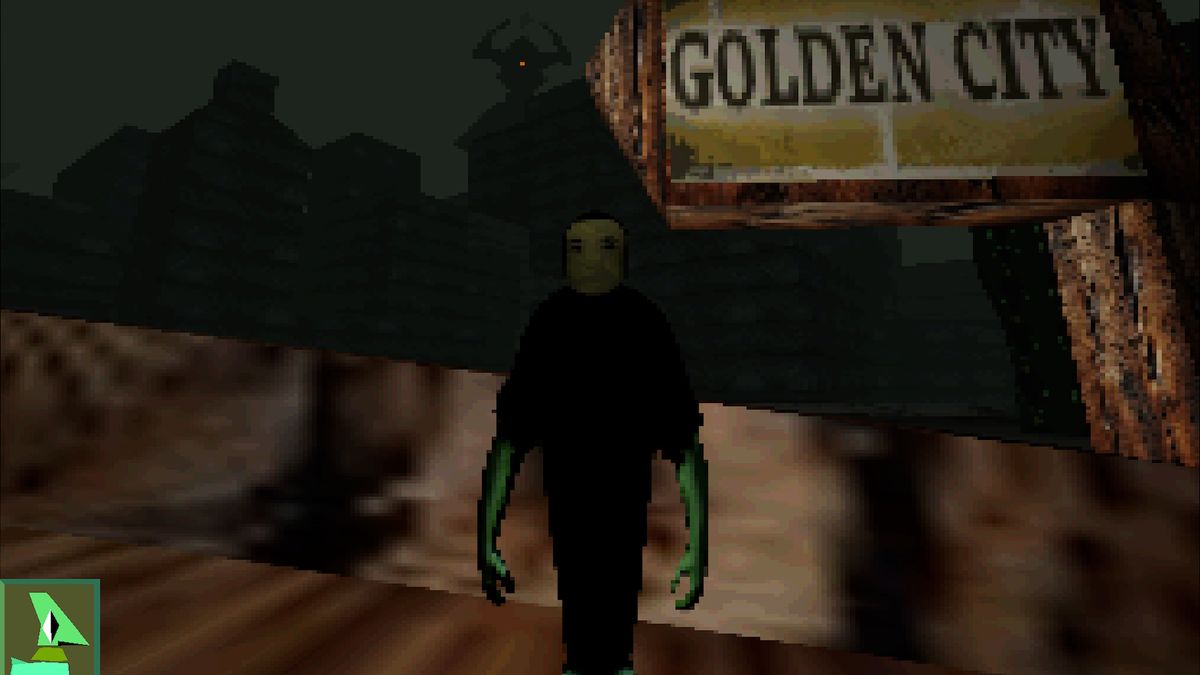
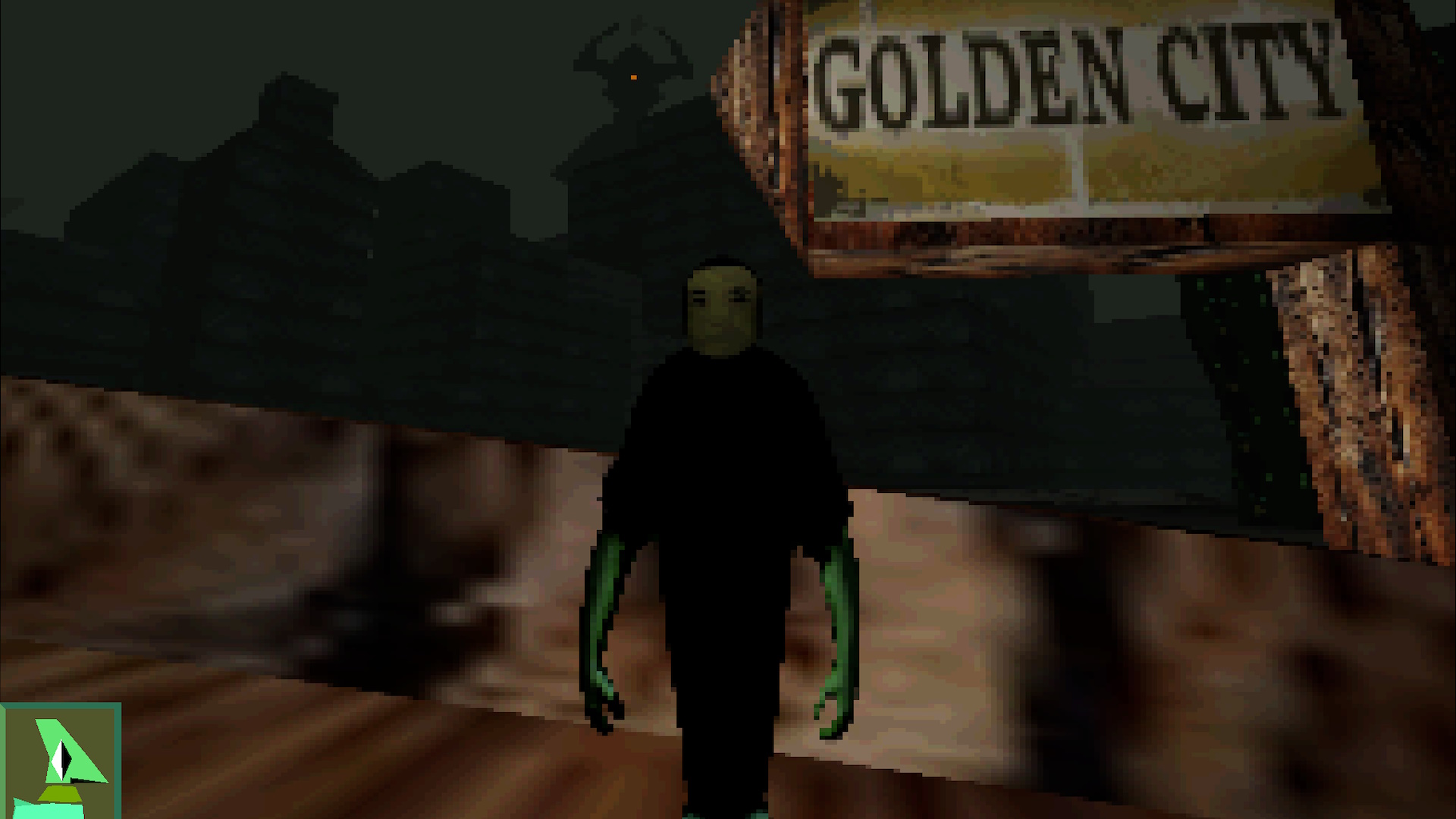
© Floombo
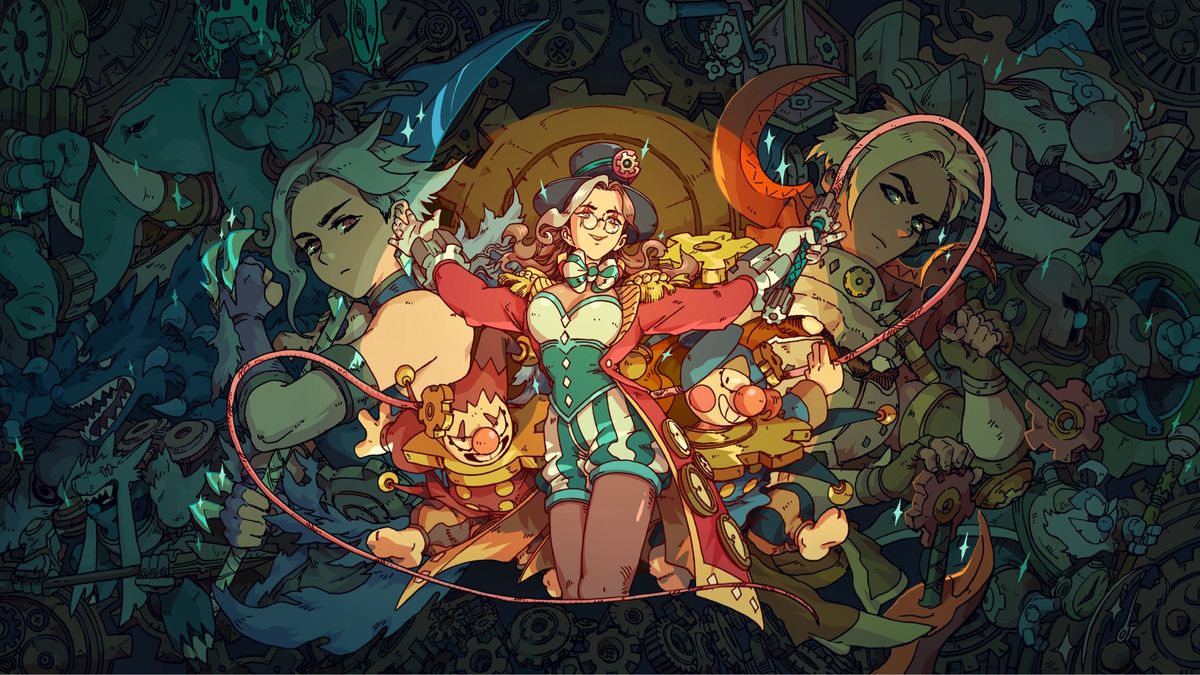
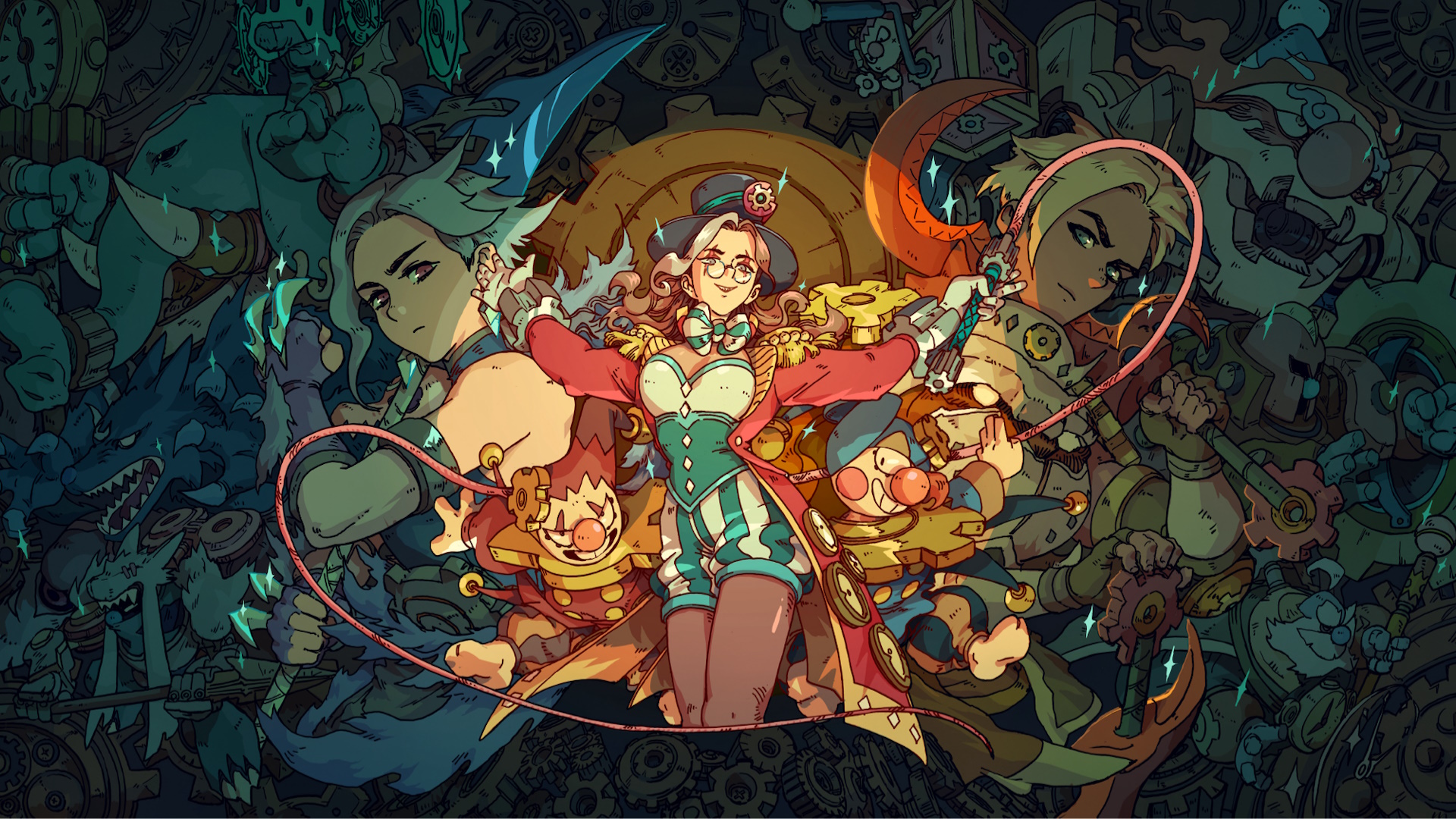
© Sabotage

Spoilers follow for Thunderbolts.
You wouldn’t expect a Marvel movie to be so focused on prime New York real estate. And yet, that’s exactly what happens in Thunderbolts, where a major portion of the action takes place in and around what was formerly known as Avengers Tower – now called The Watchtower, thanks to new owner Valentina Allegra de Fontaine (Julia Louis-Dreyfus). While this does tie up a plot point that’s been dangling since Happy Hogan (Jon Favreau) moved the Avengers out of the HQ in 2017’s Spider-Man: Homecoming, it also raises a bunch of questions. Money questions. Specifically, how much did Valentina pay Tony Stark (Robert Downey, Jr.) for the tower? And what would be involved in renovating an entire high-rise, right in the center of New York City?
To give a little more background here, and you may be aware of this: Avengers Tower does not exist in real life. Despite being home to two major battles next to Manhattan’s Grand Central Station (those would be in the first Avengers movie and Thunderbolts), the MCU building has replaced another, real-life landmark: 200 Park Avenue South, also known as the MetLife Building. In the comics, the Tower is 93 stories tall, and as seen in the movies, it’s packed with bells and whistles like a helipad that allows both Iron Man and a Quinjet to take off. It also gets attacked. A lot. The MetLife building? No Iron Man take-off platform, and also far fewer supervillain attacks.
Michael T. Cohen, a Principal with Williams Equities, which owns and invests in several million square feet of NYC real estate, has over 40 years in the real estate business – and more importantly, has been a fan of Marvel Comics and movies for years. He compared Valentina’s purchase to the offering of 590 Madison Avenue, a high-rise office building 15 blocks uptown from “Avengers Tower” that recently had an asking price of $1.1 billion.
“The metric by which we would measure the value would be price per square foot,” Cohen explained. “So my guess is, there's nowhere where they safely tell you whether it's a million square feet, or a million and a half, or how large it really is… So we're kind of shooting in the dark here, without any of the underlying math, but I would say one could easily assume that the Avengers Tower would sell for a billion dollars or more based upon the look of it, the size, and the location.”
Other buildings in the area that have changed hands or are getting built up include a Hyatt that has been on hold for a while, though it looks to get started next year. The Chrysler Building has changed hands a number of times. And multiple buildings in the 50s and 60s (streets) – 10 to 20 blocks North of Grand Central – are getting converted into apartments, versus the towering office buildings that have dominated the area for decades.
There are a few more factors that Cohen added that would impact the asking price for Avengers Tower. The first? The rooftop helipad, which was banned in NYC in 1977. “How did the Avengers, and how did the buyer… How did these people arrange for the city to change the rules to permit a helipad back in the middle of the city again?” Cohen said. “Somebody would have had to pull some strings. There would have had to have been some interesting conversations around allowing that to happen, because right now it's not permitted.”
As a not-so-insignificant sidebar, the 1977 ban occurred after a helicopter crashed on May 16, on top of what was then called the Pan Am Building. The horrific accident killed five people and wounded eight others, including a pedestrian who was hit by a rotor falling from the roof. In 1992, after Pan Am was dissolved, the name was changed to match the new owners, and the building was renamed as… the MetLife Building.
Kevin Draper, a New York City historian and owner of NewYorkHistoricalTours.com, explained further that there were already issues with helipads in the city due to the noise. While the Pan Am helipad was part of New York history – Draper recalled that The Beatles took off from there for their iconic Shea Stadium concert in the ‘60s – the accident in ‘77 “pushed it over the edge. That's when people realized, ‘We can't have this anymore.’”
So the mere existence of that part jutting out from Avengers Tower would be an issue to work out for both Tony Stark and new owner Valentina Allegra de Fontaine, since it shouldn’t exist at all. But helicopters landing is far from the only issue facing the building, home of both the Old Avengers and the New Avengers: It’s a prime target for supervillain attacks, as seen in multiple movies and TV shows.
“It would be very challenging to buy property insurance for Avengers Tower if you were a conventional investor,” Cohen continued. “The Avengers, presumably, don't occupy the entire building. While it's a fabulous location and it's terribly prestigious, how would you feel about being a tenant in Avengers Tower, say, on the floor beneath them, or above them, or anywhere in the same elevator bank? Do the Avengers have a private entrance, or do they ride with the conventional tenants? If you really built Avengers Tower in the middle of the city, there are some very interesting, idiosyncratic considerations one would have to take into account.”
And one last idiosyncratic consideration? The constantly under-attack building is, just like the MetLife Building, on top of a transportation hub, aka Grand Central Station.
Draper noted that Grand Central has become even more desirable recently as “tens of thousands of people can come straight from Long Island into Grand Central Terminal, which means that's going to do a lot … in terms of people wanting to keep their corporations and headquarters or what have you in that neighborhood… In the world of Marvel, having some sort of very important headquarters there makes perfect sense.”
The subway entrances at Grand Central are utilized in Thunderbolts when the team is ferrying innocent bystanders to safety while The Void (Lewis Pullman) is going hog wild. But in terms of a building prone to destruction, the potential liabilities both for the owner of Avengers Tower and the city of New York might outweigh the benefits.
Just to take a step even further back, what would even be involved with a massive real estate deal like buying Avengers Tower? According to Cohen, it’s a multi-step process that would involve creating an offering memorandum, which would contain reports on the maintenance of the building and infrastructure, and then inviting interested parties to sign a confidentiality agreement to check it out.
“For Avengers Tower? It would not be outlandish to have 40 or 50 investors sign the confidentiality agreement and visit the website to examine this data. But then, eventually, the seller will call for bids,” he says.
From there, the sealed bids are submitted to the seller – in this case, Tony Stark, or more likely Pepper Potts (Gwenyth Paltrow), since she handles the business side of the company. The buyers will evaluate what they think the building is worth and how they’ll gather those funds. If those buyers be worthy, they wield the power of… A second bid. That second bid will encompass a higher offer, which will continue to whittle the number of bidders down to one or two. At that point, the seller will try to “squeeze as much money from his favorite buyer as he possibly can, and hands are shaken, and papers are drawn, and whoever got left at the altar becomes, you know, Miss Congeniality waiting in the wings.”
In this case, we don’t know who Miss Congeniality was (perhaps Sam Rockwell’s Justin Hammer?), but we do know who won Miss America: Valentina Allegra de Fontaine. She purchased the building around 2016 (when Spider-Man: Homecoming is set), but as we discover in Thunderbolts, essentially abandoned it and any planned renovations for years.
Cohen explained it’s unusual for prime real estate like Avengers Tower to sit vacant for years, though it does happen. If so, it’s usually because the investor “didn’t have the capital necessary to re-tenant it,” or alternately, there might be a “casualty event, meaning a flood, a fire, an explosion, something that would account for the building being emptied.”
In this case, it’s simply that whatever Valentina’s plans were for the building -- the Sentry program, a new Avengers team, setting up a Shane's Tires outlet -- didn’t pan out. Now, though, with the New Avengers team introduced at the end of Thunderbolts, it’s time to finish what she started.
“If it’s been sitting vacant for 11 years, [it] would be a likely candidate for a makeover,” Cohen noted. (Thunderbolts is set around 2027, so 11 years after Homecoming.) “Being in disuse for that period of time, building systems, other things, there are a lot of things that go bump in the night. And a buyer of a building that's been vacant for 11 years, it would not be unusual for them to want to invest, revamp, and dress it back up.”
But there is one last question worth addressing: Why would other people want to be anywhere around Avengers Tower, given the semi-regular bouts of destruction raining down on their heads?
“The magnetic attraction of cities like New York is so great that people will tolerate a certain amount of discomfort,” Cohen explained. “Now, would they really tolerate an alien attack? That's anybody's guess, right? But New York is a terrific city.”
And the Thunderbolts – now the New Avengers – might be prone to agree. No asterisk necessary.
Modder ‘AgentLoginov’ has just released a brand new update of the RealDOOM3 Mod for, you guessed it, Doom 3. So, let’s see what this new update brings to the table. For those who don’t know, RealDOOM3 is a mod that aims to update the game’s atmosphere and graphics. It also updates the maps, adds new … Continue reading RealDOOM 3 Version 4.0 is now available for download →
The post RealDOOM 3 Version 4.0 is now available for download appeared first on DSOGaming.
Fallout 4 fans, here is something for you today. Modder ‘GlowingPeketo’ has released a new cool DLC-sized expansion mod for Fallout 4, called Atom’s Retribution 2. So, let’s see what’s in store for you, shall we? Atom’s Retribution 2 offers over 27 hours of new content. The mod comes with over 30 main quests and … Continue reading Atom’s Retribution 2 is another cool DLC-sized mod for Fallout 4, offering 24+ hours of gameplay, 40+ new quests, over 4000 lines of fully voiced dialogue, new weather system, one new worldspace, and more →
The post Atom’s Retribution 2 is another cool DLC-sized mod for Fallout 4, offering 24+ hours of gameplay, 40+ new quests, over 4000 lines of fully voiced dialogue, new weather system, one new worldspace, and more appeared first on DSOGaming.
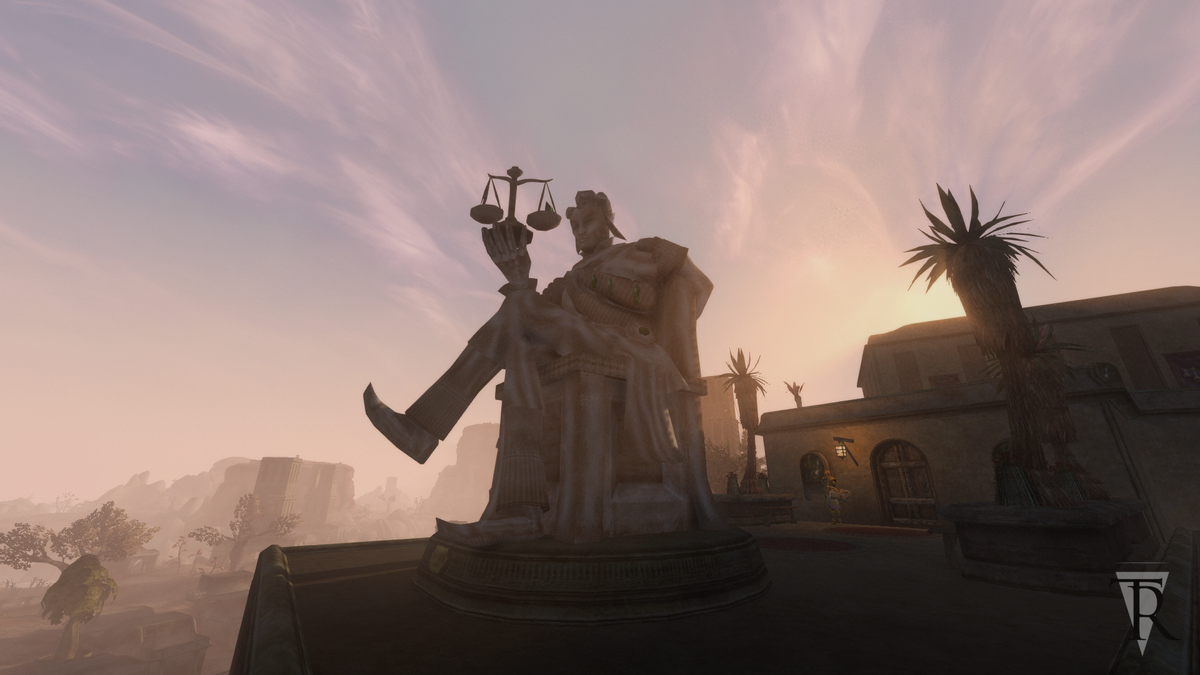
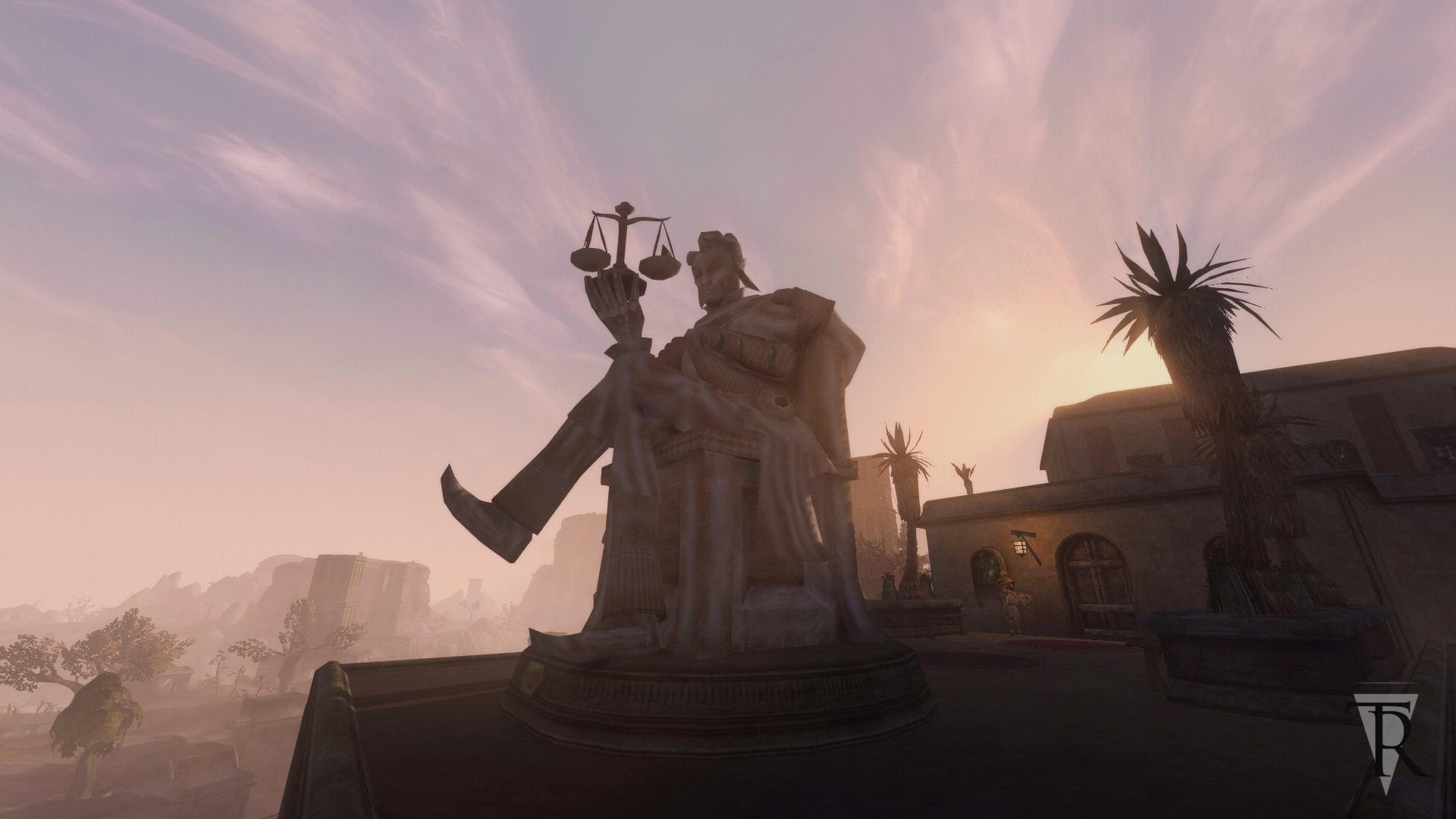
© Tamriel Reborn/Bethesda

This review contains full spoilers for Doctor Who season 2, episode 4, "Lucky Day."
"Lucky Day" marks a notable shift in Season 2: It’sthe first episode without Russell T Davies credited as a writer. While his guiding hand is often a hallmark of this era, Peter Hoar’s script brings a refreshing change in tone. There’s a distinct, almost nostalgic charm to “Lucky Day,” one that subtly evokes the scrappy energy of the early revival years. Grounded in a recognisably mundane modern-day setting – a welcome sidestep from mystical contrivances – we’re instead thrown back in with season 1 companion Ruby Sunday, navigating life back on Earth.
The focus on Ruby marks “Lucky Day” as this year's Doctor-lite episode, but with some bookending appearances that lend the story a stronger sense of his presence than last season’s “73 Yards”. Millie Gibson gives another strong lead performance, leaning on familiar themes that highlight a companion's struggle to find their place in the world without the Doctor. While the episode flirts with the idea of being a story about life beyond the TARDIS, that’s not really where “Lucky Day” finds its footing.
What ultimately elevates the episode out of its Doctor-lite obscurity is its choice of villain: Ruby’s seemingly harmless boyfriend, Conrad. It’s smartly revealed halfway through the episode that he’s the ringleader behind the online anti-alien conspiracy group Think Tank. It’s an effective and darkly comic twist, emphasizing the all-too-common way online hate groups can spread, fester, and mobilize. It also provides all the more context to Conrad’s behaviour throughout the episode. His awkward attempts to impress Ruby, calling on the Doctor’s name, initially come off as a fairly generic way to provide some character motivation, but retroactively make a lot more sense. His naive vulnerability is exposed as manipulation, and Ruby’s fury at how he’s put others in harm's way feels both earned and real. Plus, in a universe crowded with cosmic gods and ancient evils, it’s rare and wonderfully intriguing to see humanity cast as the real threat, especially as neither the Doctor nor UNIT has a satisfying answer to it.
But, where “Lucky Day” stumbles is in how generic it can feel from moment to moment. There’s a case to be made that this ordinariness is intentional – a reflection of Ruby’s post-TARDIS disorientation and the numbing quiet of everyday life after cosmic adventure. But the episode doesn’t foreground that idea strongly enough for it to resonate. A few scattered lines gesture at Ruby’s struggle, and her emotional arc lands in theory, but it feels too loosely stitched together to give the episode real emotional weight. The result is an instalment that occasionally feels more like a spin-off – tangential, structurally sound, but spiritually removed, lacking a little bit of the soul that makes Doctor Who stories truly sing.
Despite this, it does seem like “Lucky Day” knows the tone and story it wants to hit, and often does so with style. But it also struggles to consistently align its characters with that tone and story, wavering as it tries to mush all its themes together. The Doctor’s climactic monologue about online radicalisation, for instance, is earnest and conceptually rich, but dramatically flat and plays more like a PSA that lacks the alien detachment or emotional texture that usually gives his speeches such meaning. Meanwhile, Kate Stewart’s morally murky decision to weaponise the captured Sheek alien against Conrad (who, comically, continues to insist it isn’t real) is a rare moment of genuine moral complexity, and a compelling step forward for UNIT’s evolving role in the new era. But in the same episode, that very organisation – one that has survived Zygons, Cybermen, and the rest – is nearly undone by a staff doxxing. It’s not about nitpicking plot logic, but the scales do feel off, and that dissonance dulls the episode’s sharper ideas. Ultimately, these contradictions don’t undo its successes, but they do hold it back from greatness, even as it proves there’s still space in Doctor Who for more politically charged, satirical stories rooted in our own messy reality.
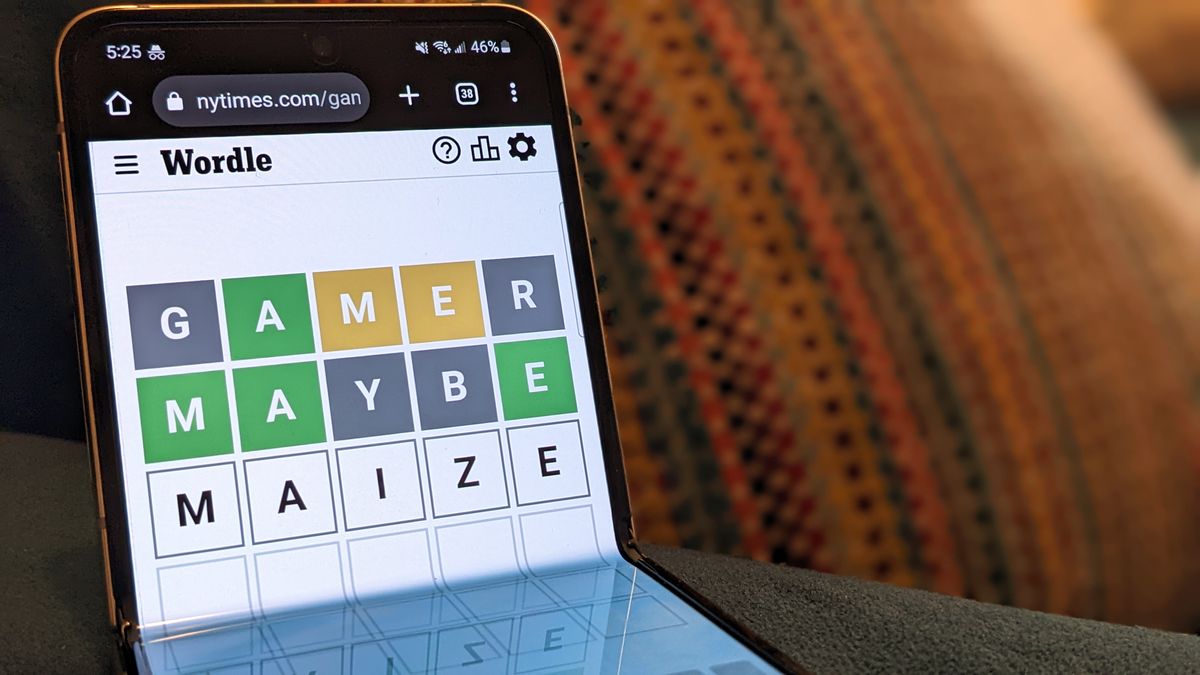

© Future

IGN's Blue Prince map is here! Our interactive map tracks essential locations across Mount Holly, including Clues and Puzzles, so you always know where to go next.
The available map filters for our Blue Prince interactive map include:

There are many puzzles in Blue Prince, and it's more than likely you'll find yourself getting stuck more than once. IGN's Blue Prince Game Help is here to assist, with guides for complicated puzzles, how to find certain items, and more.
Our Blue Prince coverage includes:
Head to our Blue Prince wiki for more Game Help.
Meg Koepp is a Guides Editor on the IGN Guides team, with a focus on trends. When she's not working, you can find her playing an RPG or spending time with her corgi.

Warning: This article contains full spoilers for Thunderbolts!
All throughout the MCU’s Multiverse Saga, fans have been asking one question: who are the Avengers now? Only now, with the release of Thunderbolts* at the end of Phase 5, do we finally get an answer to that question. It turns out that the Thunderbolts themselves are now the Avengers. Or the New Avengers, to be precise. At least that pesky asterisk is finally making sense.
What does this mean for the MCU leading into The Fantastic Four: First Steps and Avengers: Doomsday? What does it mean to be a New Avenger, exactly, and how does this twist draw upon Marvel’s various New Avengers comics? Here’s what you need to know.
The Thunderbolts movie ends on a somewhat unexpected note. No sooner do Florence Pugh’s Yelena Belova and her team regroup from their confrontation with Lewis Pullman’s Sentry and prepare to confront Julia Louis-Dreyfus’ Valentina Allegra De Fontaine than they realize they’ve walked right into a PR trap. Valentina stages a press conference where she introduces the befuddled Thunderbolts to the public as “The New Avengers.”
For those keeping score at home, the full New Avengers roster includes:
Basically, everyone who was a Thunderbolt (minus Olga Kurylenko’s Taskmaster, who is killed off early into the film) has now graduated to become a New Avenger. It’s not necessarily the Avengers lineup we would have predicted earlier in the Multiverse Saga, but given how they managed to beat overwhelming odds and save New York City, maybe they’re the team the MCU needs right now.
Of course, it’s already becoming clear that the New Avengers aren’t the only Avengers team on the block. Captain America: Brave New World ends with Anthony Mackie’s Sam Wilson deciding he’s finally ready to step up and spearhead his own team of Avengers. Whether Cap has actually gotten around to forming that team is unclear. But we do know from the post-credits scene in Thunderbolts that he’s none too thrilled at the prospect of another group co-opting the Avengers name.
That scene shows us that the New Avengers have now been active in the MCU for 14 months. They’re currently embroiled in a legal battle with Sam, who apparently owns the actual Avengers trademark. That seems to foreshadow major friction between the New Avengers and Sam’s Avengers in Avengers: Doomsday. But we’ll get to that in a bit. For now, what exactly is a New Avenger, anyway?
The concept of the New Avengers was first introduced in Marvel’s 2004 New Avengers comic. That series debuted in the aftermath of a major tragedy in Marvel’s Avengers: Disassembled comic, where a mentally ill Scarlet Witch loses control of her powers and kills several members of her team. The Avengers disband, until one fateful day where they’re called back into action.
The reason Marvel branded this team “New Avengers” is that the roster was quite a bit different from any that had come before. While Captain America, Spider-Woman, and Iron Man represented the old guard, the bulk of the team was made up of characters who would normally never be associated with the Avengers franchise - Spider-Man, Wolverine, Luke Cage, Sentry, and the mysterious Ronin. Not unlike the MCU’s Thunderbolts, these heroes never expected to become Avengers, but they quickly rise to the challenge anyway.
At first, the “New Avengers” term was completely literal. Over time, however, it came to represent a more underground, unsanctioned alternative to the traditional Avengers. Following the events of 2006’s Civil War crossover, the Marvel Universe suddenly has two Avengers teams. Iron Man leads the Mighty Avengers, a S.H.I.E.L.D.-sanctioned team that operates in full support of the Superhuman Registration Act. Meanwhile, the heroes who refuse to support the SHRA, like Spidey, Wolverine, Luke Cage, and Bucky, form another incarnation of the New Avengers. Needless to say, the two teams don’t really get along.
That split only intensifies during Marvel’s 2009 Dark Reign storyline, as Norman Osborn usurps Tony Stark’s position and spearheads his own team of Dark Avengers. The Dark Avengers are notable for featuring many major villains masquerading as heroes. For example, Bullseye becomes Hawkeye, Venom becomes Spider-Man, Daken becomes Wolverine, and so on. The Sentry also sticks around, as he proves sadly all too susceptible to Osborn’s psychological manipulation.
In many ways, the MCU’s New Avengers seem as inspired by the Dark Avengers as they are the New Avengers of the comics. Like the Dark Avengers, Valentina’s New Avengers consists of several characters who are essentially borrowing the costumed identities of past Avengers. Yelena is Black Widow. John Walker is a failed Captain America. Even Red Guardian is essentially a Russian Captain America. Also like the Dark Avengers, Sentry is both a team member and a ticking time bomb looming over their heads. Valentina herself is basically the Norman Osborn figure, right down to the way she manipulates Bob.
Even as the Dark Avengers are introduced as the government-approved incarnation of the team, the New Avengers continue to work from the shadows in defiance of the law. They are still operating even when Osborn’s crimes are eventually exposed and their names are cleared. At this point, it’s become tradition for Marvel to feature one core team of Avengers and another team of New Avengers. They aren’t always as bitterly divided as they were in the post-Civil War era, but the Marvel Universe is a big enough place for two teams. Most of the time.
Now that we’ve established that the MCU’s New Avengers draw inspiration from both the New Avengers and Dark Avengers comics, what can we predict about their future? Why is it significant that the New Avengers are being introduced in the lead-up to 2026’s Avengers: Doomsday?
It seems safe to assume that there will be conflict between Valentina’s New Avengers team and Sam’s own Avengers squad. Again, the post-credits scene sets up that rivalry pretty clearly. One Avengers team is backed by the US government, while the other is spearheaded by probably the most high-profile superhero in the MCU. Which team is more legitimate? Which one will the public accept?
In some ways, this seems to be a case of Marvel recreating the status quo of Avengers: Infinity War. At that point, the MCU also had two Avengers teams, one led by Iron Man and the other by the fugitive Captain America. The tragedy of Infinity War is that the Avengers were too divided to put up a united front in defense of their homeworld. Had they been one cohesive, fully functional unit, they might have stopped Thanos from succeeding in his goal of eliminating half of all life. Only when the Avengers truly came together again in Endgame did they set things right.
The scenario isn’t so different now. We’ve got the former Thunderbolts-turned-New Avengers and Sam’s Avengers team, and they clearly aren’t seeing eye-to-eye. Now the Fantastic Four are arriving in the MCU, heralding the great disaster that forced them from their home universe. The MCU faces another existential threat in (we’re willing to bet) the form of the collapsing multiverse. It sure would be nice if the two Avengers teams could put aside their differences long enough to fight Robert Downey, Jr.’s Doctor Doom and save the multiverse.
But that probably won’t happen. If anything, we can envision a scenario where one Avengers team throws its lot in with Doom and seeks to save the MCU by any means necessary, where the other team pursues a more noble solution to the Incursion problem. And that’s not even getting into the question of where Fox’s X-Men characters fit into this equation.
In short, there seems to be a clear intent in introducing the New Avengers at this stage in the larger MCU roadmap. However good their intentions, this team promises to create friction and tension in a time when the world needs its heroes to be united. Only time will tell if the MCU’s New Avengers can truly live up to the example of the original team.
Be sure to check out our full Thunderbolts Ending Explained, and check out every Marvel movie and series in development.
Jesse is a mild-mannered staff writer for IGN. Allow him to lend a machete to your intellectual thicket by following @jschedeen on BlueSky.

To say Star Wars and action figures go hand-in-hand is an understatement. Ever since the original Kenner toyline jump-started the merchandising arm of the film industry in the late 1970s, toy collecting has been a huge, integral part of Star Wars fandom. These days, we get a fairly steady stream of new Star Wars media and merchandise, but nothing quite like the deluge of collectibles that coincided with the theatrical releases of the first six films.
Still, Star Wars action figures aren’t hard to find. Whether you’re after some cheap and durable toys for a younger fan to bash together, or a screen-accurate articulated replica of your favorite character, or some cool collectibles that are the best of both worlds, we’ve got you covered.
The best all-around Star Wars toy line on the market right now is probably The Black Series. Introduced in 2013, Hasbro’s line of 6-inch action figures has covered all manner of characters, from household-named heroes and villains to deep cut background characters, even bringing back some “legends” no longer considered part of the official canon. They’ve even given some iconic troopers, aliens and creatures holiday special repaints. If you’ve ever wanted a trick-or-treating Were-Wookiee or a festive two-pack of Jawa Claus and Salacious Grinch, you’re in luck.
Regular figures in The Black Series will retail for around $25. Resellers will regularly charge double or triple that for older or hard-to-find figures, but it’s not uncommon to find them on deep discount. Would you pay $9 for an action figure of Werner Herzog holding a 1970s ice cream maker? Because I did.
(See? I wasn’t kidding)
The quality of paint deco and accessories for The Black Series can be hit or miss, but they consistently feature a ton of articulation and are generally quite sturdy. So, while discerning adult collectors are welcome to keep them in the box, they’re also really fun to pose, and can probably stand up to a fair amount of posing, not to mention *gasp* actually being played with.
Until The Black Series came along, Star Wars figures were primarily in 3’¾” scale, and nearly every conceivable character from the first six films has been immortalized in that form. Aunt Beru. The alien fishmonger from whom Jar-Jar shoplifts. A member of the Corscant volunteer fire department. The original concept art for Han Solo that looks suspiciously like George Lucas. George Lucas himself.
The 4-inch figures owe a lot of their success to their small scale. They were (initially) cheaper to produce, and they don’t take up a ton of space. Plus, the small scale allowed for plenty of vehicles, playsets and creatures. Sadly, the same can’t be said for The Black Series. Multiple characters in X-Wing pilot gear have been made, but no X-Wing. A TIE Fighter was released alongside The Force Awakens, but it was the size of an end table and cost about as much.
Though they’re not quite as prevalent as they were in decades prior, Hasbro is still putting out a steady stream of smaller Star Wars figures, though they’ve been fragmented into three different product lines, clearly aimed at very different types of buyers.
The Vintage Collection is effectively the smaller-scale equivalent of The Black Series. Collector-grade packaging, sculpts, paint and articulation, but roughly 2/3 the size and price. For anyone who’s got an existing collection of 4-inch figures from the ‘90s-’00s, these ones will display nicely alongside them.
A fun-size action figure for $17 bucks a pop might seem a bit steep, but it’s a drop in the bucket compared to a $400-500 playset of Jabba’s Sailbarge, the Mos Eisley Cantina, or The Ghost in the same scale, all of which have been produced through Hasbro’s Haslab crowdfunding program; proving there’s still plenty of collector demand for stuff in this scale.
Vehicles and playsets are still available at non-idiotic prices, too. Hasbro also recently revealed a Bantha with real hair, (to help you complete that Jundland Wastes diorama and also practice your French braiding), but it has sold out already!
Thankfully, they do still make Star Wars action figures that are just for kids, not just maladjusted adults obsessed with weird puppets and background characters from movies they watched growing up. Hasbro quietly launched the Epic World of Action line, a series of reasonably-priced 4-inch figures in colorful packaging with the odd spring-loaded project. The lower price point means limited articulation and minimal paint ops, but if anything, that just makes them better suited to get bashed around in the backyard.
The line also includes the sort of vehicles you might expect, as well as some you might not, like Darth Vader’s giant mech suit that’s just shaped like a larger version of him. I’m behind on the comics, but I’m guessing that’s not canon.
In recent years, there’s been a rise in popularity of non-Star Wars figures made in the same style as Kenner’s original toy line, namely Super7’s ReAction figures. Appropriately, Hasbro followed suit with The Retro Collection, which reprinted those classic Kenner molds, and has since moved on to producing new toys of more recent Star Wars characters in that goofy but charming late-70s style.
In the early 2000s, Gentle Giant pioneered the “Real Scan” technology that allowed actors’ faces to be digitized and then faithfully reproduced in miniature. Hasbro used it for the first figures based on Attack of the Clones, and Gentle Giant cornered the market on high-end mini-busts.
Then, presumably, someone had the bright idea that if this technology could be used to scan real people’s likenesses and shrink them down as toys, it could also be used to scan toys, and blow them up to… much bigger toys. And that’s exactly what Gentle Giant’s Jumbo Figures are; Kenner’s classic Star Wars figures, recreated 400% larger, packaging and all.
As gorgeous as the packaging is, it’s comically cumbersome. I’ve bought a couple of these figures at conventions and opted to just open them up rather than try to stuff a boogie board-sized clamshell into my carry-on. But I’m glad I did because they’re really nice toys on their own. Unlike the solid plastic of the toys they’re based on, the Jumbo Figures are hollow vinyl, which means they won’t explode or give anyone a head injury if they fall off a shelf, but their scale makes them a delight to play with and hold.
They’re all really limited edition, and most of the classic stuff has come and gone, so you’re either stuck with deep cut Return of the Jedi characters or original faux-retro sculpts, which may not be a bad thing, depending on what you’re into.
Hot Toys are expensive, but it’s immediately apparent why. Absurdly realistic and immaculately detailed, these are, without question, the highest quality Star Wars figures ever made (as well as Marvel, DC, Aliens, Predator, and a pile of other licenses). The large scale means they’ll quickly fill up a shelf, but if you can afford Hot Toys in the first place, you can probably also afford another shelf, glass case, and maybe even a whole room to display them in.
As blasphemous as it might seem to take a $300 action figure out of the box, these are absolutely meant to be posed and displayed (and it’s easy enough to put them back in the box for storage). They’re not designed for any kind of rough play, and have a lot of delicate parts, but they’re excellent candidates for toy photography.
Before Hot Toys came along, Sideshow was the company making high-end 1/6th scale Star Wars figures, albeit for around half the price. These days, Sideshow distributes Hot Toys stateside, but they still make the occasional Star Wars figure of their own, which are also gorgeous, and you can generally buy them everywhere Hot Toys are sold.
My personal favorite toy line for quite some time, Bandai’s S.H. Figuarts series features an impressive amount of articulation, plus a ton of alternate faces and hands, giving them a ton of versatility for realistic poses. In my experience, the joints stay fairly tight after years of posing, which isn’t always the case.
Nobody’s going to mistake them for the real thing with all the visible joints, but the sculpts and paint ops are all very clean, and despite some fiddly, delicate little parts, they’re pretty sturdy. (Not sturdy enough that I’d let my 4-year-old play with mine, but not the sort of thing you’re afraid of breaking.)
Basically everything I said about S.H. Figuarts also applies to MAFEX. It’s the same type of action figure in the same scale at roughly the same price point, but from a different company. Generally, MAFEX figures are usually a little more expensive, but also frequently more detailed. However, in my experience, they feel a bit more delicate compared to Figuarts.
Star Wars was heavily influenced by the samurai films of Akira Kurosawa, so what if they made a bunch of samurai armor inspired by Star Wars? Well, they did. Or at least they made action figures of people wearing it. The Meisho Movie Realization series is dedicated to feudal Japanese remixes of iconic Star Wars characters. The line mostly features masked, armored or otherwise hard-surfaced characters, which makes sense given the subject matter, but there’s an Obi-Wan and a Darth Maul, plus a couple of aliens in the works.
These are definitely display figures first and foremost. They feature plenty of articulation, but that’s almost mitigated by the amount of armor plating that gets in the way. They’re considerably bigger and heavier than S.H. Figuarts or MAFEX, so getting them to stay put on a shelf is, well, a bit of a balancing act. That said, if you didn’t think The Mandalorian paid enough of an homage to Lone Wolf and Cub, problem solved.
This is by no means a comprehensive list of all the Star Wars figures out there, but if you’re looking for one of those, JediTempleArchives, Banthaskull and RebelScum are all great resources.
If you’re interested in building your own Star Wars action figures, that’s also an option. Check out the model kit buyer’s guide I put together, which features some Star Wars kits as well as a bunch of other alternatives.
Max Scoville is a senior writer, host and producer for IGN covering video games, movies, toys and collectibles. He has 15 years of experience in pop-culture media, previously writing for and/or appearing on Current TV, Destructoid, Revision3 and StarWars.com. He has been involved with several podcasts, including The Comedy Button, Weird Heat, Podtoid and you can currently find him hosting IGN’s weekly PlayStation show, Beyond.

Whether you own a Nintendo Switch, a Switch Lite, or a Switch OLED, you know how versatile and fun this console can be. To make the most of your gaming experience, investing in a few accessories – some of which are Switch 2 compatible, including the Pro Controller as we've learned from the April Nintendo Direct – can take things to the next level.
From Switch controllers allowing better control (and less cramping) during intense gameplay, to screen protectors keeping your Switch safe from any scratches, the right accessories enhance performance and protection. We've logged countless hours on the Nintendo Switch using a variety of different accessories to help direct you to the most essential add-ons.
Although the standared Switch console comes with Joy-Con controllers and a charging dock, we still think there are a few extras worth adding to your purchase. Below we've gathered all of the Switch accessories we've tested and deemed worthy of any Switch user in 2025 and beyond.
The small thumbsticks and triggers available on Nintendo Switch's Joy-Con controllers can be a pain, so unless you're gaming exclusively on the go, you owe it to yourself to play with something bigger and better. We found in our review of the Nintendo Switch Pro Controller that it is a welcome solution to this issue. This gamepad offers all the controls you need for a Nintendo Switch with a familiar and far more ergonomic design. All-in-all, the Switch Pro Controller is better than Joy-Con for most things.
The Nintendo Switch Pro Controller works wireless and charges using a USB-C cable. Boasting a 40-hour battery life, you’re all set for an all-day gaming marathon. The larger, easier-to-use controls and real D-pad provide undeniable improvement to your gameplay, while HD Rumble should immerse you further into the action. It even supports Amiibo with its NFC chip. Best of all, this controller should last the duration of your Switch's life cycle, making it a very sound investment.
See more of our picks for the best Switch controllers.
If you spend far too much time in a state of panic when you accidentally drop your Nintendo Switch, maybe it's time to make a tiny investment in a screen protector. The amFilm Tempered Glass Screen Protector goes right over your Nintendo Switch's display, keeping it safe and giving you a little peace of mind when the device starts to slip from your grasp.
The screen protector is built to take the brunt of an impact, so you don't have to live with your Switch permanently in docked mode. At under 10 bucks for a two-pack and an installation kit, it’s hard to come up with an excuse not to buy this. A cracked display on a Nintendo Switch will set you back a lot more than this economical solution, and the device's touchscreen capabilities and screen clarity remain the same.
We've done quite a bit of testing with screen protectors across various devices and have confirmed that tembpered glass is the way to go. This is especially true if you have the Switch OLED and want to avoid losing any of the upgraded screen's clarity.
When taking your Switch on the go, you want a hardy case to protect it from the elements, possible scratches, and the inevitable drop. The RDS Carry Case does just that, thanks to its hard-shelled exterior and fitted linen interior with a padded screen protector. There’s even a handy rubber handle to make toting it around easy.
Beyond that, inside the case is a pair of hard clamshell cases for games that slot into a recessed panel, while a small attached zipper pocket provides a place to store cables or even more games. There's a built-in adjustable stand, too, which makes for easy playing or viewing on the go. If you’ve got the Switch Lite or OLED, those devices can also fit comfortably in this case.
See more of our picks for the best Switch cases, including Nintendo Switch battery cases.
Unless you're comfortable carrying around a bunch of game cartridges, you’ll want your favorite games installed directly on your Nintendo Switch. However, there's a little hitch in that plan, given how little storage the Switch actually has for games. So, it's worth it to pony up for a Switch microSD card, especially if you're going to shop several game deals. It can dramatically increase the storage capacity for your Nintendo Switch and do it for an affordable price.
The SanDisk 128GB Ultra drive hits a sweet spot. You can pick it up for under $20, which means it's cheaper than even a so-so controller but provides serious utility. That 128GB offers plenty of room for games, and you can always grab another later if you end up needing more room for your game library. With 120MB/s read speeds, the card ensures you don't run into painfully slow loading times for games stored on it. SanDisk also backs it up with a 10-year warranty. Importantly, standard microSD cards are not compatible with the Switch 2, which require a microSD Express Card to expand storage.
Don’t love the Switch’s traditional Joy-Con? Well, our hands-on review of the CRKD Nitro Deck offers upgrades to the controllers and offers a slew of other features to make your gaming experience on the device even better. Rather than attaching Joy-Con to either side of the Switch, the Nitro Deck lets you slide the screen into it, connecting via USB-C, providing a sturdy, secure, and more comfortable-to-hold option. It is noticeably heftier than Joy-Con, but the weight is distributed evenly.
However, the quality controls will be the main reason you grab the Nitro Deck. There are Hall effect thumbsticks, so you can say goodbye to that pesky drift that plagues the Joy-Con. All the rest of Switch's traditional controls are accounted for with clicky buttons and a good amount of tension in the D-pad, while the four shoulder buttons are longer with more travel. You also get four programmable back buttons, which, beyond shooters, we found handy in Super Smash Bros. Ultimate and The Legend of Zelda: Tears of the Kingdom.
Although our Razer Barracuda X review won't blow you away in terms of overall sound quality, what you get for the price is quite good.. For under $100, you get excellent audio quality and a lag-free wireless connection through the low-latency 2.4GHz USB dongle. This headset also offers seamless Bluetooth connectivity for your Nintendo Switch as well any of your other Bluetooth devices.
In our testing of the Barracuda X, we were most impressed by how truly comfortable it is for the price,, Thick headband padding, and lightweight plastic body make for a portable and comfortable option for most gamers. Weighing just 250g, it is ideal for extended hours of gameplay without feeling really heavy on your head. What makes the Barracuda X even better for long gaming sessions is its 60-hour battery life, and even when it runs out of juice, you can always use the included 3.5mm cable to keep playing via a wired connection.
It's not quite as convenient as many of our favorite gaming earbuds on the market, but what you get for the price makes it on of the best Switch headsets you can buy in 2025.
The Nintendo Switch's almost entirely flat form-factor can be a pain to hold, literally, and the small size of the Joy-Con also isn't fun for users with large hands. In our own hands-on testing of the Satisfye ZenGrip Pro, we found that it is able to prevent your hands from cramping up and provides a more ergonomic hold on the console, making you a lot more comfortable during your gaming marathons.
The Satisfye ZenGrip Pro is all about giving your hands a pair of simple, grips to hold onto. With them, your fingers and thumb can properly wrap around rather than dig in at the bottom of the Joy-Con. The handles are diagonally arranged, so your wrists sit at a more natural angle, while the plastic frame can also act as a stand. It even features silicone tabs to prevent the Switch from getting scratched. The only real fault with this grip is it makes your device a bit less portable when attached. Though, if you're looking to add a little extra comfort to your Switch gameplay, the Satisfye ZenGrip Pro is a good place to start.
The Joy-con your Switch comes with are great, but sometimes you want a better grip and larger controls. With the Hori Split Pad Pro, you get just that, plus some convenient extras. Everything on this controller is scaled up. You get a bigger, textured grip to help distribute weight better, and in turn, makes your Switch more comfortable to hold even during your longest gaming sessions. You’ll find the larger analog sticks, triggers, and D-pad provides more accuracy in your games and decreases cramping when pulling off combos. Unfortunately, there is no motion control, rumble, or NFC reader on this joy-con alternative.
On top of experiencing a full-size controller in handheld mode on the Hori Split Pad Pro, you also get the option to use the Joy-con as a separate wired controller. With this Split Pad Pro Attachment Set, you dock each one in and get a quality standard controller. You even get a mic input for gaming audio and voice chat. Two additional rear paddles are also included, which can be remapped, but only the right-side buttons can be mapped to the right rear paddle, and vice versa.
Given the Nintendo Switch is ultra-portable, one would’ve thought its dock would be too, but that’s not the case. It’s clunky and prone to damage, so you’ll want to find something else to take on the go. Luckily, the GENKI Covert Dock Mini measures just 1.35 x 1.66 x 1.3 inches and has foldable prongs, making for a super compact, pocketable device that has the ability to increase your screen size.
This mini dock isn’t equipped with a bunch of extras or the fastest charging speeds. However, it has exactly what you need; a USB-C port and an HDMI output. The USB-C offers 20W charging speeds to keep your Switch topped up as you play; a USB-C cable is even included with the dock. After the Switch is plugged into the USB-C, an HDMI port transfers video signals at up to 4K/30Hz, exceeding the Switch’s 1080p max output. You aren’t limited to only using the Switch with the GENKI Covert Dock Mini either, it works seamlessly with the best laptops, iPads, and the Steam Deck.
The Nintendo Joy-Con Wheel is a simple yet effective Switch accessory that brings a more hands-on feel to your racing games, particularly when playing titles like Mario Kart 8 Deluxe. While it’s not as advanced as a fully-fledged racing wheel, it’s a great option for casual gamers and younger players who want to get more involved in the action.
With its easy setup (just insert a Joy-Con into the wheel) you’ll feel like you’re right behind the wheel, making it a fun and engaging way to race. The Joy-Con Wheel is especially useful for kids, offering them better control and an intuitive way to steer through races. Plus, the package comes with two wheels, making it great for multiplayer sessions.
Though basic in design, it’s excellent value for money, providing a simple way to enhance your gaming experience without breaking the bank. It’s a practical and enjoyable accessory that turns every race into a more interactive and enjoyable experience!
Want more precise control for fighting games? Using a fight stick helps you dominate your competition. The 8BitDo Arcade Stick we reviewed has you covered when it comes to the Switch, featuring the typical joystick and eight buttons found on most fight sticks and two additional macro buttons. A simple switch lets you change the function of the joystick to serve as the left thumbstick, right thumbstick, or D-Pad. And, if you want to mod it, it's compatible with other arcade parts, including Sanwa's. Pulling off combos and different attacks will be a breeze with this controller.
The 8BitDo Arcade Stick connects to your Switch over Bluetooth, USB-C, or a 2.5GHz wireless receiver. As a bonus, it connects to a PC, too. The fight stick’s look and feel should take you back in time to a less complicated life but with all the modern features you need.
See more of the best fight sticks for fighting games.
The way Nintendo designed the Joy-Con to charge when connected to the Switch was ingenious. But, if you're hosting a big Mario Party or Smash Bros. Ultimate tournament, this becomes a huge headache. These are the exact scenarios that call for a dedicated Joy-Con charger, like the HyperX ChargePlay Quad 2. Rather than just being able to juice up only two Joy-Con with your Nintendo Switch, you can charge up to four simultaneously.
HyperX ChargePlay Quad allows each Joy-Con to slide easily into the sturdy base, and indicator lights let you know when they're all charged up. The long USB-C cord for power means you can keep the charging station close. It also makes it easy to hot-swap controllers, so you barely miss a moment of a game’s action. The Pokeball look also adds to the charger's aesthetic.
Nintendo isn’t known for chasing the most stunning graphics despite how beautiful its games end up being. Sharp-eyed gamers are likely to spot some jagged edges here and there, and the Switch could benefit from some extra anti-aliasing. Its resolution limit can also result in a blurrier experience when you pair it with a higher-res display. Enter the mClassic adapter. This unit sits between your Nintendo Switch and display, connecting via HDMI, and adds a bit of post-processing magic to your video feed.
The mClassic upscales gameplay to a higher resolution, applies extra anti-aliasing to smooth out pixelation and jaggies, and can add depth of field effects and image sharpening. It performs this processing with negligible lag, too, so you can continue to tackle even the hardest games. The mClassic is particularly handy for retro games on consoles like Nintendo 64, where you want to see smoother visuals, but you can apply it to anything coming out of the Switch. There’s even a special 4K upscaler mode to enhance 1080p video content.
Grabbing one of the top portable chargers is the most simple and effective way to extend the battery life of your Switch. Its stock battery will only last about nine hours, and you’ll be lucky to get that much playtime. So during long travel days or time away from an outlet, a portable charger, like our favorite, Emperor of Gadgets Portable Power Bank, can be a lifesaver. Unlike your typical power bank, this one straps onto the console, adding a little extra bulk to the device but still providing an enjoyable playing experience.
With the Emperor of Gadgets Portable Power Bank comes 10,000mAh of extra juice, which should effectively double the battery life of your Switch. A 15-watt power delivery ensures a quick fill-up, while a built-in USB-C cable means you don’t need to worry about bringing your own along. You aren’t limited to just charging your Switch either, as it comes with an additional USB-A and USB-C port ready to charge up your gaming phone, wireless earbuds, and more.
We've found quite a few other great Nintendo Switch chargers like this one if you need more ways to charge your console on the go or at home.
As accessories are add-ons for your Switch, you probably don't want to spend too much money on them. Luckily, the basics we'd recommend are normally under $50 for all three products: a case, a screen protector, and an SD card. These items immediately ensure protection and allow you to store more games, making it a great place to start.
From there, you’ll want to focus on quality-of-life products based on your lifestyle and needs:
As for other accessories like upscalers, docks, or printers, you can grab these down the road depending on your needs. No matter which accessories you decide to purchase, do the research to ensure the accessory is compatible for your Switch model.
Now that we have more details about the Switch 2, we have better clarity over which current Switch accessories will play nice with the Switch, and it's a mixed bag. Because of the Switch 2's magnetic Joy-Con and bigger screen size, things like screen protectors, cases and other form-fitting attachments will not be compatible. Though the Switch's Joy-Con won't be able to snap into the Switch 2, they are compatible via Bluetooth; the Switch Pro Controller will also be compatible (but the Switch 2 Pro Controller is not compatible with the Switch). Your microSD card will also be incompatible; the Switch 2 will only work with a microSD Express card. However, hold onto any power banks and other accessories that use USB-C: The addition of an extra USB-C port on the Switch 2 means that you'll be able to use more accessories at once.
There are several Switch accessories you can buy, but if you've just purchased the console, there are a few things you should get first. The most essential accessories are a carrying case, a microSD card, and a screen protector. These items will allow you to protect your Switch and also download more games to the console. You may also want to look into getting a more comfortable Pro controller or a nicer set of Joy-Con since the base set is not ergonomic for long-term gameplay.
The original 6.2-inch LCD touchscreen console comes with an AC adapter, a Nintendo Switch dock, and HDMI cable. Beyond that, there are left and right Joy-Con, along with straps for individual Joy-Con use and a Joy-Con grip for turning the two controllers into one for gaming on a TV.
With the 7-inch OLED model, you get all the same accessories as the original, but the Switch dock has a LAN port for a wired internet connection.
As for the Switch Lite, it’s also light on accessories. There’s no dock or HDMI, as you can’t connect it to your TV. The Joy-Con are also not detachable, so you’ll only find the console and USB-C charger in the box.
Although the Switch itself doesn't go on sale very often, Nintendo Switch accessories will often see discounts throughout the year. The general rule of thumb is that the best times to buy a Nintendo Switch are also the best times to buy Switch accessories. Some of the more popular events where you're guaranteed to find discounts on gaming accessories are Amazon Prime Day in July and Black Friday in November.
Danielle Abraham is a tech freelance writer and unpaid music historian.
Georgie Peru is a freelance writer and also contributed to this article.

If you're a Nintendo Switch owner, you've probably noticed something pretty quickly – the internal storage fills up fast! The standard Switch only gives you 32GB, and even the upgraded Switch OLED bumps that up to just 64GB. Sounds decent until you realize that most of the best Switch games require at least 10GB of storage on average, if not more. Before you know it, you're out of space, especially if you're into downloading games from the eShop. That’s why having a Switch microSDXC card like the SanDisk 512GB Extreme is pretty much essential.
By popping an SD card into your Switch, you can load up on all the games you want without worrying about deleting old ones to make space. Depending on how much you want to store, there are SD cards that offer up to 1TB of storage. Just keep in mind that all your game save data will still live in the console's system memory by default. If you're moving onto the Switch 2, know that your old SD cards won't fly there; you'll need to move on to a MicroSD Express card to upgrade the Switch 2's storage.
SD cards come in a bunch of different sizes, speeds, and prices. But if you're looking for the best experience, grab one with UHS-I compatibility and higher transfer speeds – that’ll help with smoother gameplay and faster loading times.
If you’re wondering which SD card is best for Nintendo Switch, you’ve come to the right place. We’ve handpicked some great SD cards that work seamlessly with your Switch, whether you want to install tons of games, save gameplay video clips, or need something to hand when you’re transferring data to other devices.
SanDisk is a familiar brand name, so you can expect reliability and durability when you purchase the SanDisk 512GB Extreme microSDXC Card. With a range of storage options to choose from, you can max out your Nintendo Switch’s storage, allowing you to install plenty of games, save files, and screenshots without needing to delete other games to free up some room. We think the 512GB option is incredible value for money, but if you want to splash out, go for the 1TB card.
If you upgrade to a different SD card in the future, this SD card comes with an adapter, meaning you can use it across other devices so it doesn’t go to waste. In the meantime, the SanDisk 512GB Extreme microSDXC Card boasts generous data transfer speeds of up to 190MB/s – just download the games you want and put them straight onto your SD card in a cinch.
This SD card’s durable design is shockproof, temperature-proof, waterproof, and X-ray-proof (who knew that was a thing?). So if you’re going on vacation and taking your Nintendo Switch with you, you’ll have the extra reassurance that your game files are somewhat safe even through a TSA scanner.
Have a tight budget but still want a capable microSD card? The Samsung EVO Select A2 SD card is a perfect choice. Coming in at around $40, this card meets the minimum requirements of the Switch with its UHS-I interface and A2 rating for faster optimization. Sure, transfer speeds lag behind other cards. But given that Nintendo seems to cap speeds around 95MB/s anyway, there won’t be a discernable difference in game load times compared to those faster, pricier cards. It’s only when using the microSD card with other devices that those quicker speeds come in handy.
Even if Samsung EVO Select A2 is on the cheaper side, it still offers a healthy dose of storage space at 512 GB. That’s plenty of room to store a sizable gaming library, gameplay clips, and more. If you want to use this card with other devices, it’s possible to double the storage to 1TB. And for those that stick to playing only a couple of games, 64GB, 128GB, and 256GB options exist to suit just about any need.
What’s even better is this card is built to last, ensuring precious game data remains safe. It's waterproofed in case of accidental splashes or dips in liquids, while resistance to extreme temperatures, X-rays, and magnets means the Samsung EVO Select A2 is ready to go just about anywhere. It can even withstand drops over 16ft. Clearly, this SD card can handle far more wear and tear than the Switch itself.
With 1TB of storage, the SanDisk Ultra A1 SD card is an excellent choice for the Nintendo Switch. The SanDisk Ultra A1 has transfer speeds of up to 150MB/s, which is well above the range needed for fast downloads on the console. It's likely that you won't even come close to running out of storage, with room for well over 75 games to be installed at once.
Most games on Nintendo Switch are well below 15GB, so this SD card should more than suit your needs. The biggest games range from anywhere between 30GB and 60GB, but there are less than ten that fall under that umbrella. Any extra space on this SD card is perfect for taking as many screenshots and video captures as you'd like.
If you're looking for the best high speed SD card for your Switch, look no further than this SanDisk Extreme Pro SD card. This card uses SanDisk QuickFlow Technology to quickly optimize files and give you the best performance possible. When it comes to launching or downloading games, this feature can come in extremely handy for load times.
With 256GB, you shouldn't run into any issues installing a healthy library of games to your system. Although the Switch does not have 4K support of any kind, this SD card is made for quick transfer of 4K content. So, your 1080p screenshots and videos will quickly transfer over to a laptop or PC with the blink of an eye.
This Zelda SD card has arguably best design you can find for a compatible Switch SD card. At 1TB of storage, you should have no issues with running out of space for new games. Although the speeds are a bit lower than other options on this list, this is the only SD card officially licensed by Nintendo we feature here.
This card is made with the Nintendo Switch in mind, so you can expect a quality product overall. The design featured is the iconic Triforce from The Legend of Zelda series, which is a perfect way to showcase your love of the Nintendo franchise (even if you can't actually see it when you're using it). Overall, there are better options, but this is a good choice if you prefer to snag a unique design.
Investing in an SD card for your Nintendo Switch is a game-changer. But knowing what to look for is important too. You could just buy a cheap SD card that’s got a decent amount of storage space, but there are other factors to consider.
For the Nintendo Switch, a microSD card is an essential Switch accessory. Without it, you'll only have enough space to install a few games on the system. An SD card will allow you to install dozens of titles on Switch without any worry of deleting games to free up storage.
Generally, Nintendo tends to keep its games on the smaller side, but there is a sizeable amount of third party titles available that are well over 32GB. This is the onboard storage for standard Nintendo Switch and Nintendo Switch Lite models, so you won't even be able to install that game without an SD card.
Most likely any SD card with 256GB of storage or higher will be more than enough for your Nintendo Switch. Some of the largest Nintendo titles, like The Legend of Zelda: Tears of the Kingdom and Xenoblade Chronicles 3, only weigh in at 16GB and 14GB, respectively. If you plan to primarily play Nintendo-developed titles, you should be more than fine with a 256GB SD card.
However, if you would like to play big third party releases on the platform, like Mortal Kombat 1, you should aim for an SD Card with over 512GB of storage. The latest NBA 2K game takes up over 60GB on Switch, which adds up quickly if you don't have a substantial SD card. Overall, the size of SD card best for you depends on the games you play, but it is essential for any Nintendo Switch owner to have one slotted into their system.
No. Though more details on the Switch 2 confirm that most games will be backward compatible, SD cards for the standard Switch models will not work with the new Switch 2. You're going to need a MicroSD Express card if you want to expand the storage on the Switch 2. These cards are currently compatible with the standard Switch, but have generally been less accessible (and are more expensive) than standard SD cards.
Noah Hunter is a freelance writer for IGN, covering deals, shopping guides and more.
IGN's tech freelancer Danielle Abraham contributed to this buying guide.

Star Wars Day is May the fourth, which sounds enough like “May the Force be with you” that the internet turned it into a thing, and Disney was happy to play along. So each year, in the lead-up to May 4, all sorts of Star Wars gifts like games, movies, LEGO sets, accessories, and apparel go on sale. Below, we’ve gathered all the best deals on all things Star Wars into one place for your perusing convenience. So grab your lightsaber and let’s take a look at what’s on sale this year.
Star Wars Day is big enough that a number of major retailers are running sales on all sorts of Star Wars-related items. We’re talking action figures, board games, LEGO sets, costumes, apparel, movies, video games, and more. If you have a preferred retailer, click the above links to see all its Star Wars Day deals.
Most of the major digital game storefronts are running sales on all manner of Star Wars video games from a galaxy far, far away. These range from classic PC games from the '90s all the way up to PS5 and Xbox Series X games like Star Wars Jedi Survivor and the PSVR 2 game Star Wars: Tales from the Galaxy's Edge. That's decades' worth of deals. There are even some older Star Wars games on the Switch on sale if you don't have a more powerful gaming rig.
LEGO already has a whole lot of Star Wars sets, but the brick-building company went all out this year by introducing no fewer than 10 new Star Wars LEGO sets. You can see them all here at the LEGO Store, but many are also available on Amazon if that’s your preferred retailer. They’re all very cool, especially the new Jango Fett starship, which is the latest in the 18+ line of Ultimate Collector Series sets.
My personal favorite Star Wars show is Andor, hands down. The second season is currently airing on Disney+, but you can pick up the first seeason on Blu-ray for 50% off right now. Now that's a deal.
Funko Pops are great because they’re small and inexpensive – and they have figures for just about every piece of pop culture under the sun. There’s a whole world of Star Wars Funko Pops out there, and many of them are available in Funko’s Buy 2 Star Wars Items, Get 1 Free sale.
The gaming chair maker Secret Lab is running a big Star Wars sale of its own this weekend. In it, you can pick up a new gaming chair that's decked out in Star Wars imagery, or you can get skins, chair sleeves, and more.
Hasbro revealed new Star Wars action figures during the Star Wars Celebration last month, and preorders have already started. Altough it isn't a deal, it's worth mentioning here for any fans looking to collect Star Wars action figures.
Chris Reed is a commerce editor and deals expert for IGN. He also runs IGN's board game and LEGO coverage. You can follow him on Bluesky.